#I just find it bizarre to have so many little aspects of my childhood shape me
Text


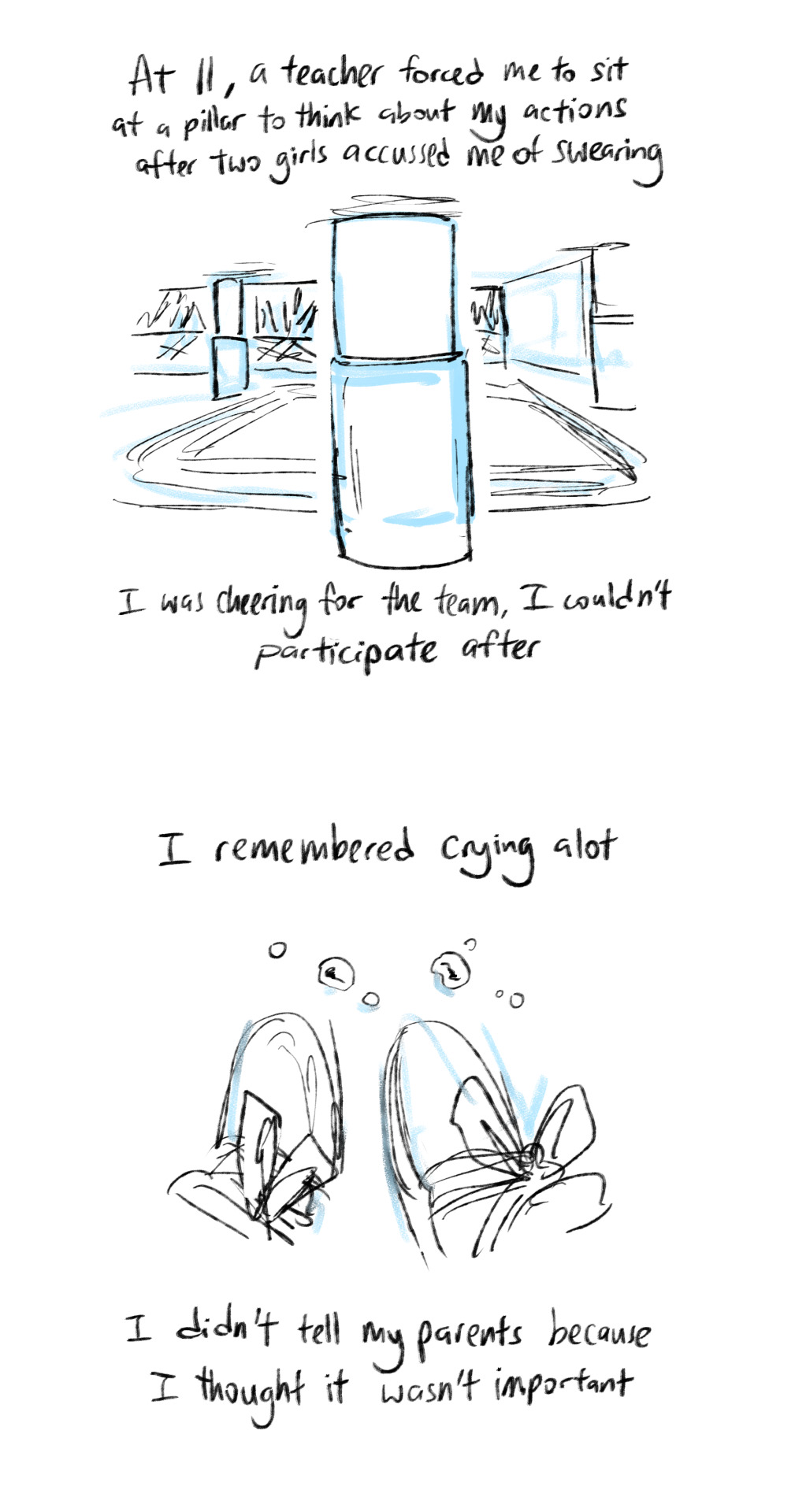
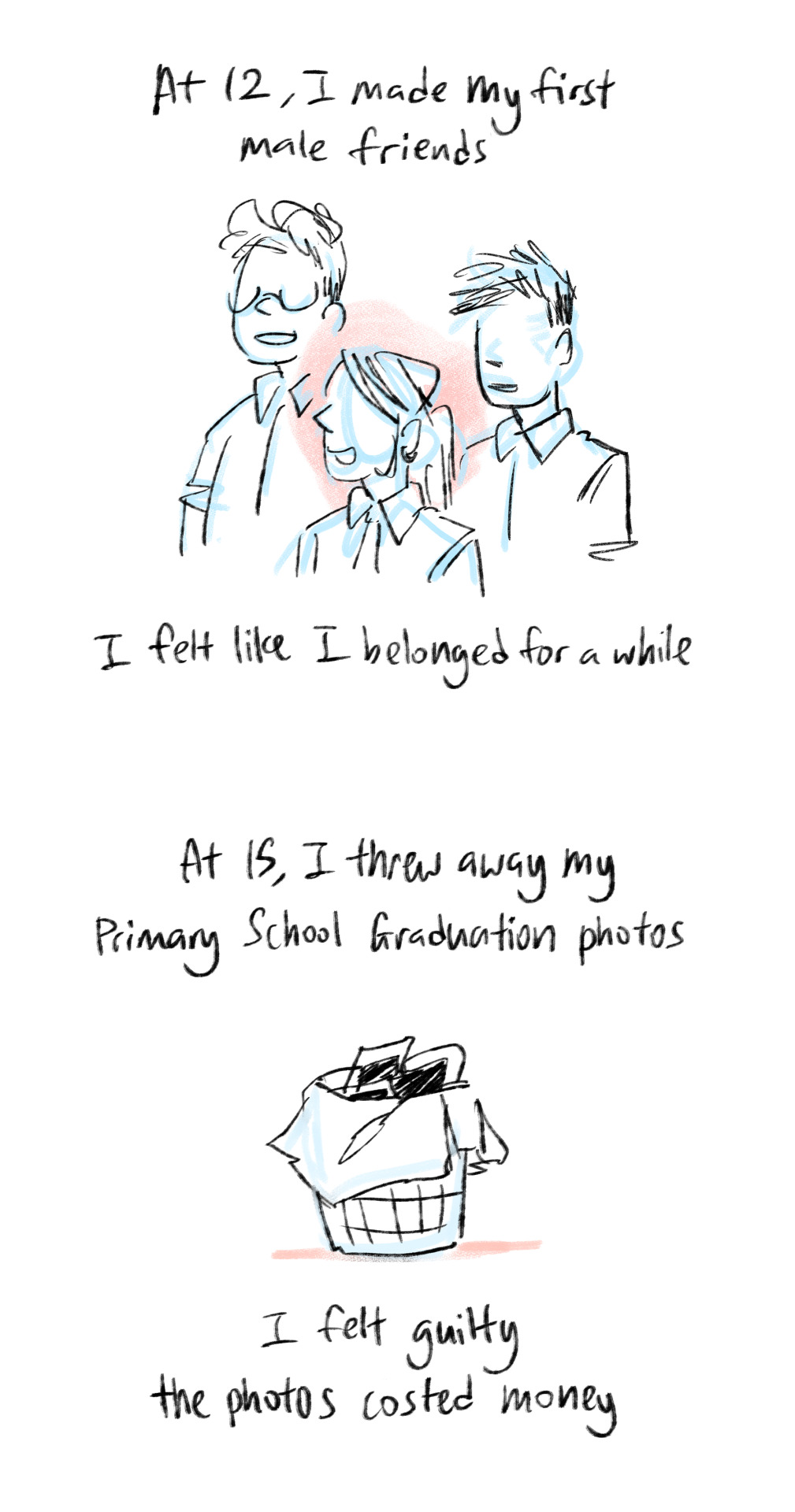
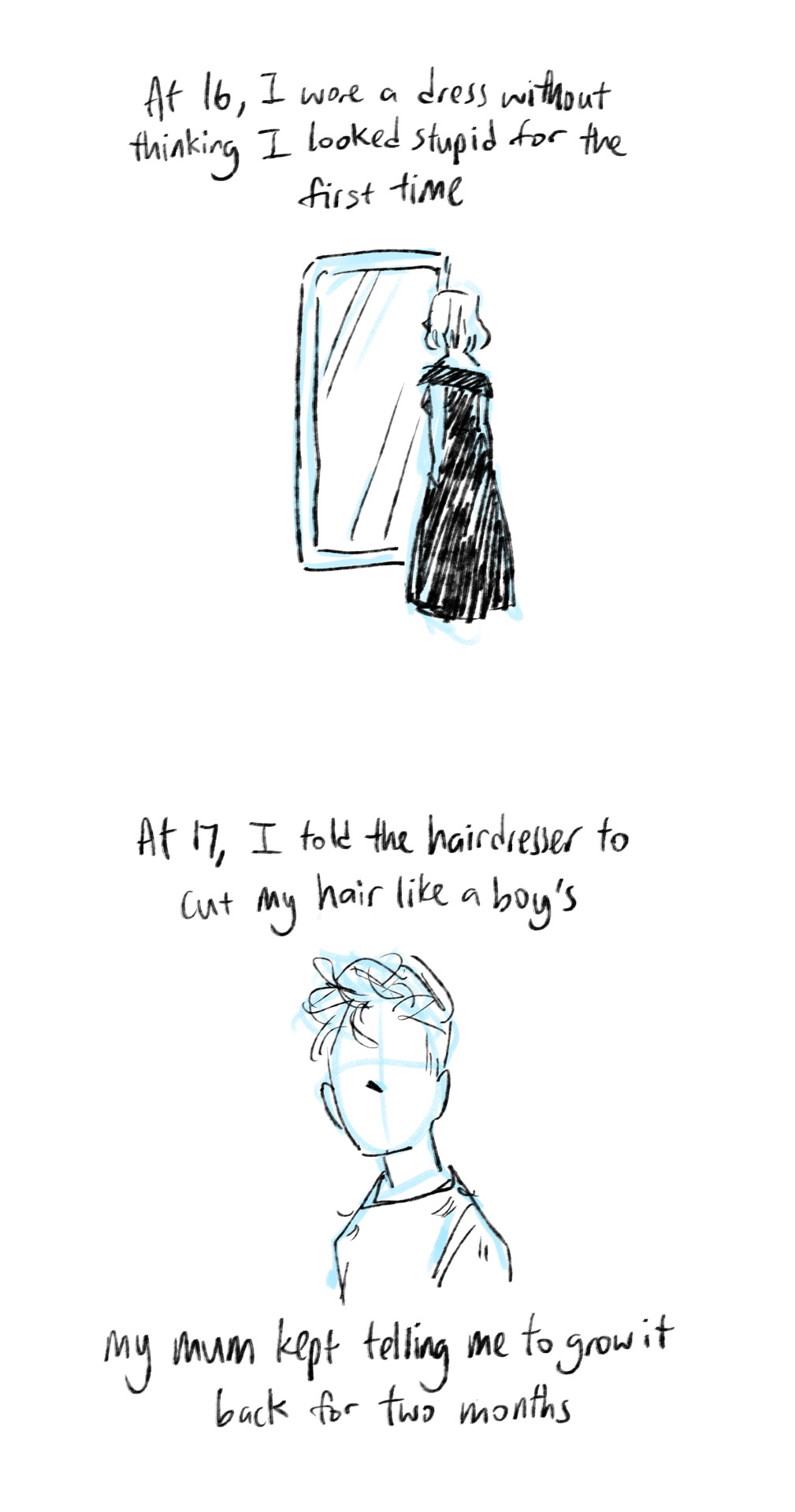
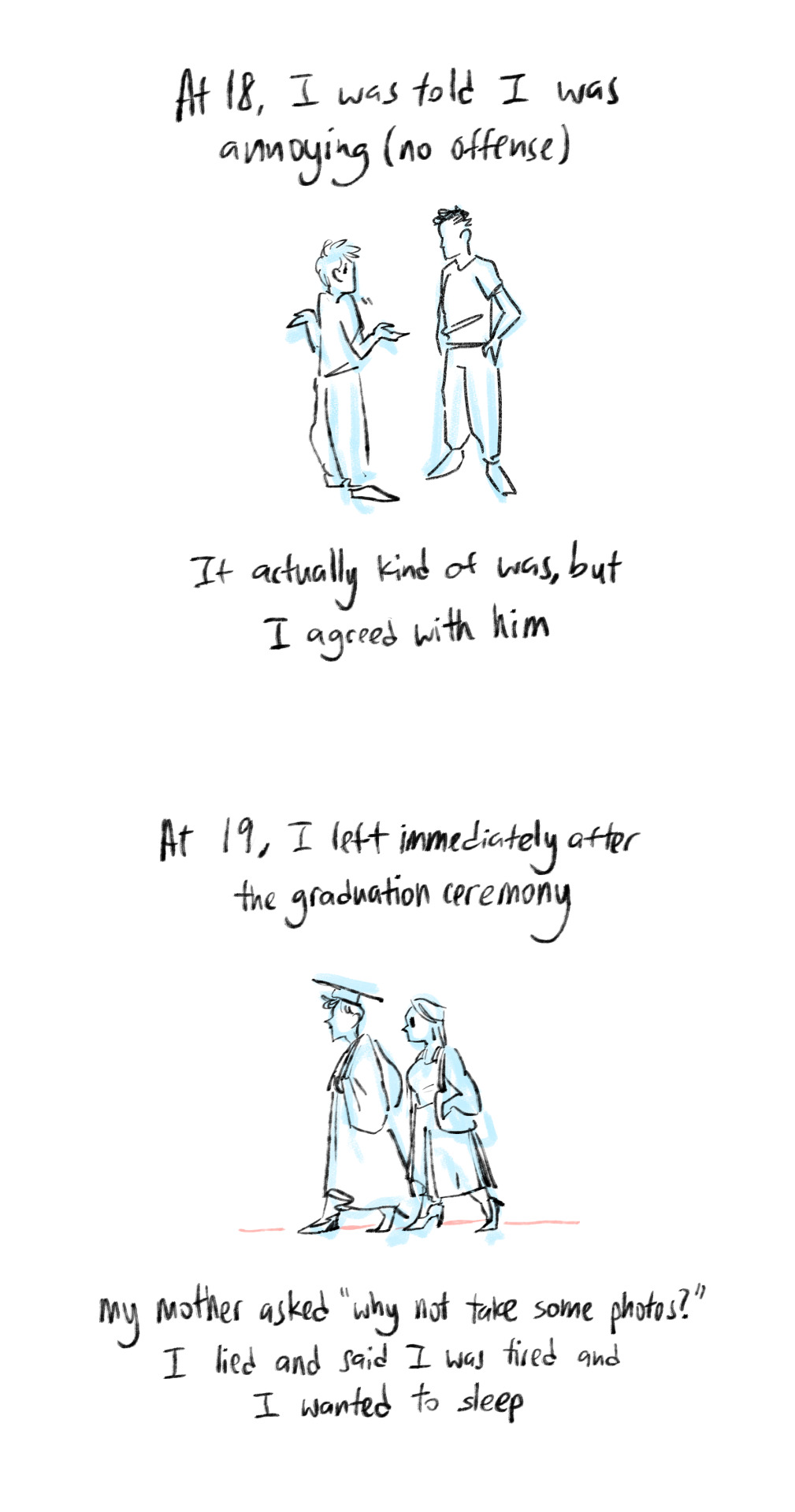
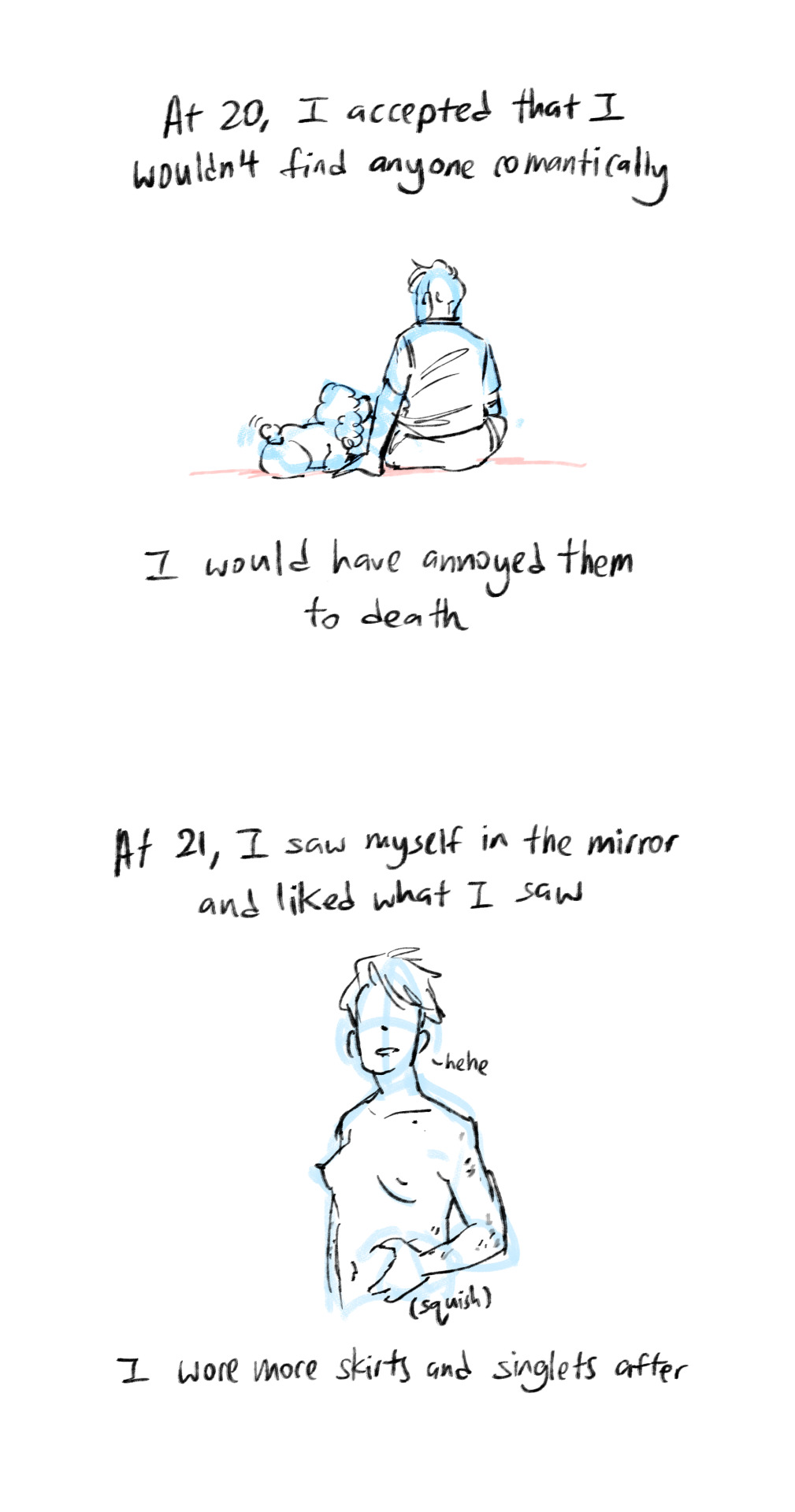
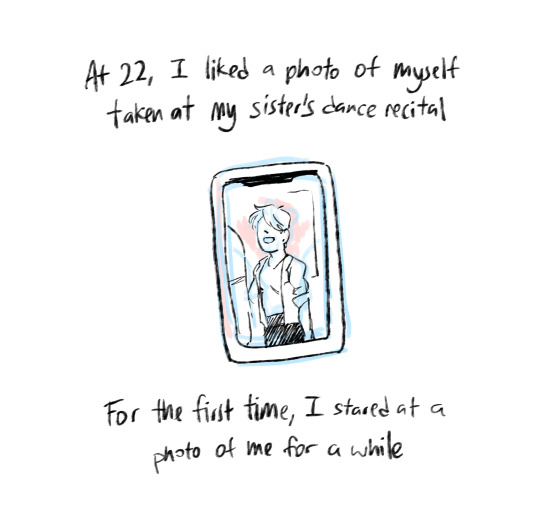
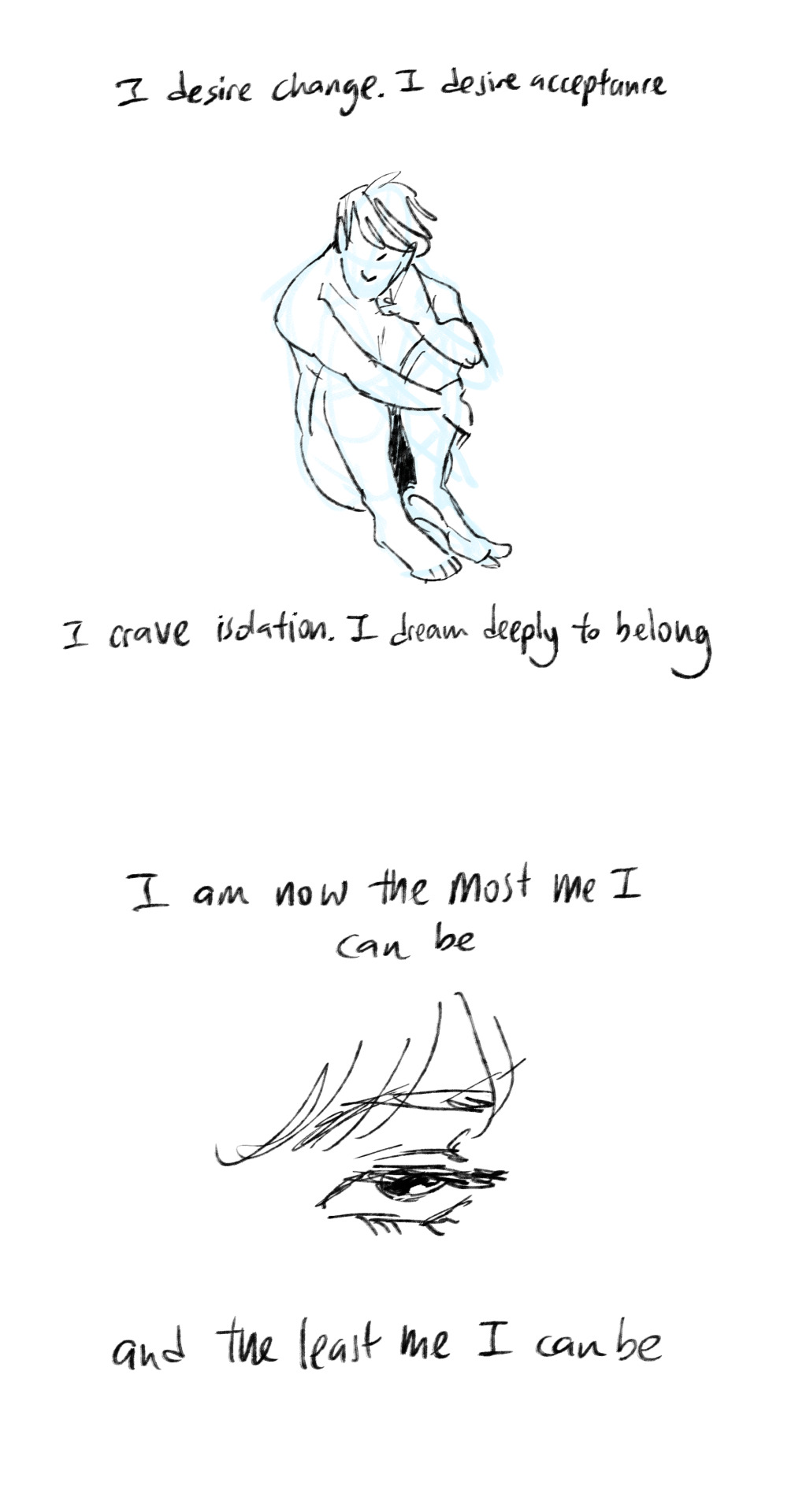
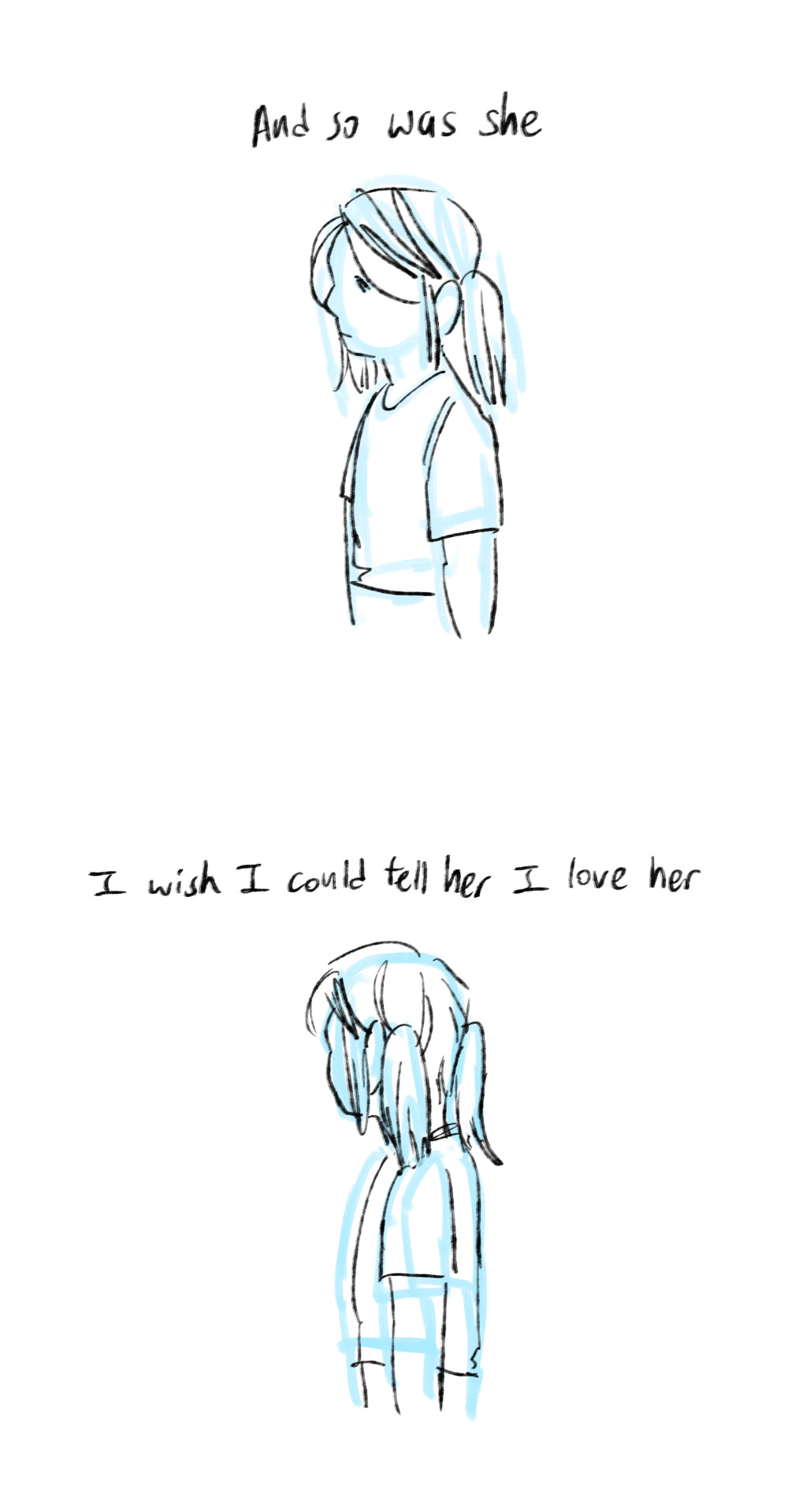
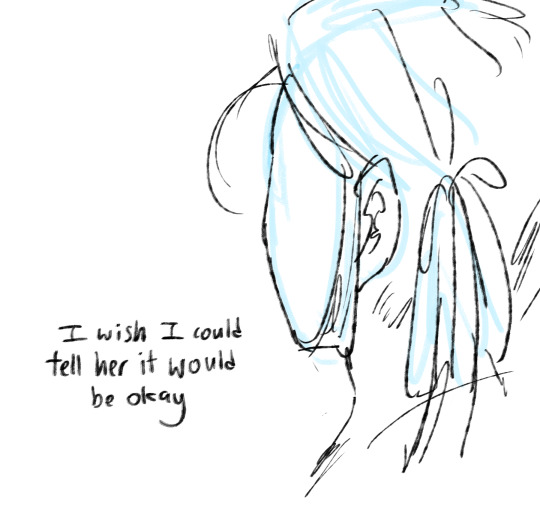
Accepting isolation, craving belonging
#art#digital art#comic#long post#this is kind of vent?#I don't want to be all I had a rough childhood wahh#I just find it bizarre to have so many little aspects of my childhood shape me#I crave isolation#I thrive in isolation#But I want to belong#I want to intimately know someone#and I want someone to intimately know me#This is to all the people who have loved me#even if we dont talk anymore#i love you and have loved you and i want nothing but for you to be happy#original post
1K notes
·
View notes
Photo
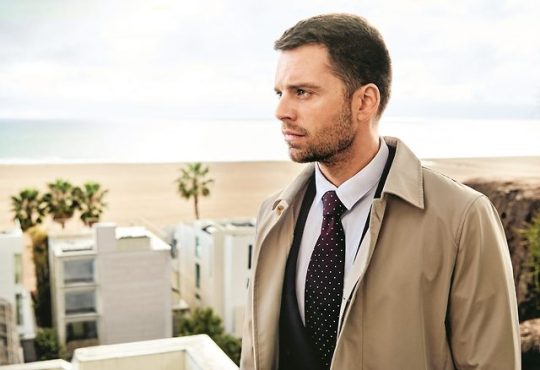

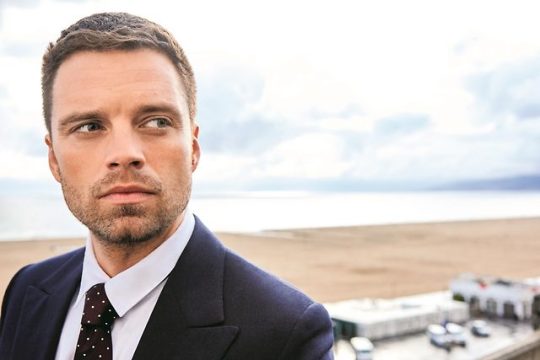
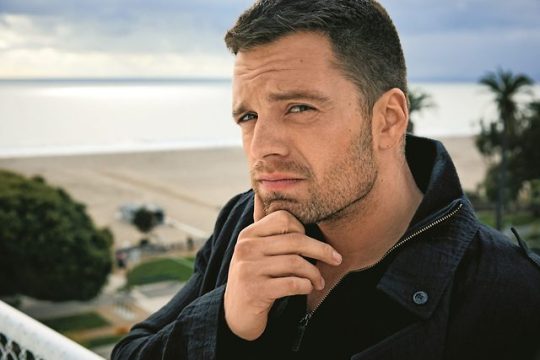
Sebastian Stan’s Musings on Life in August Man Malaysia Issue 115
APRIL 18, 2018
Sebastian Stan is a humble man. Humble to a fault. One couldn’t imagine a superhero from the Marvel Cinematic Universe played by such a down-to-earth, unassuming man. But since 2010, Stan has played Captain Bucky Barnes, who had his big break as a leading character in Captain America: Winter Soldier. Maybe that’s how Marvel and Disney trick us into seeing these movies: they hire nuanced, thoughtful actors and not just action stars. Resistance is futile.
This year is shaping up to be a big one for Sebastian Stan, with new roles where he gets to show his acting chops, such as his turn in I, Tonya, where he plays the scheming husband of the title character, and a lead role opposite Nicole Kidman in Destroyer. Although he lives in New York, Stan frequently travels to Los Angeles for work, and it is during one of his westward treks that we caught up with him, in the penthouse of the Shangri-La, a luxurious beachfront Santa Monica hotel.
You’re originally from Romania. It’s a country sometimes viewed as the Latin country of Eastern Europe. Do you have a bit of Latin/romantic in you?
Yes. I was born there and I left when I was eight. Then I lived in Austria for four years and then I came to the US in 1995.
I’m originally from France. Romanian is also a Latin language, like French.
Romanian is a little bit closer to Spanish and Italian, with some Slavic stuff added. I’d say the filmmaking there is seemingly close to French style. It’s sort of deep. Tragic stories about suffering! (Laughs) It’s like the real life. I’m a fan. I love a lot of foreign movies. I’m trying to reeducate myself of what’s going on there, and I’ve watched more Romanian movies lately.
Are they offering you parts over there?
No. I’m actually going back. First time I’m going back since 2004. It has been 14 years. I still speak the language fluently, although I have an accent. I’d like to find something one day potentially to reconnect. That’s the plan. I’m going back for their film festival. It’s nice to haveI, Tonya screened there. It’s a good reason to go. One of my goals is to meet with these filmmakers, get to know them. You never know. We’ll start a conversation.
I read your mum is a pianist. Did that play a part in you choosing an artistic path for your career?
I don’t know. When we were in Austria for a little bit of time, in her mind she had always seen me as a creative type. She was pushing me a little bit towards acting, taking me to some open calls. She used to get a kick seeing me imitating people. I didn’t like it. I was in this tiny series when I was in Vienna, very briefly. I hated it. I hated the fact you had to be on the spot, you had to wait around to work. I was like “back off, leave me alone”. I rediscovered it on my own when I was a teenager in New York. I’m glad I did it later. I think she wanted me to discover it by myself.
What was it like to arrive in New York at 12 years old?
It was very weird. A lot of my childhood was kind of chaotic, moving around. But this is what life is – the life of an actor. You’re always moving, four months there, 10 months there. I’m kind of used to change; I crave it. I like relocating and going to a place I’ve never been and restart, get to know it. All that stuff is fun for me, when doing my job.
I think the first time you got some mainstream visibility was when you did the TV show Gossip Girl, right?
I did some things before that, but Gossip Girl, I think it was such a popular show; it was an unbelievable show. It was an amazing opportunity for me. First of all I was living in New York and it was shot in New York. I never thought my character would reoccur. Also one of my best friends was in it, Chace Crawford, so it was nice to reconnect with him. We were hanging out anyway, so it was like “let’s just go to work at the same time!”. I guess that was the first time that, here and there, someone was recognising me. I don’t think in the industry I was recognised for anything. But the show was so popular.
It was huge!
I forgot how popular it was. I think it was setting trends.
You’ve been playing Bucky Barnes for close to a decade now. How has playing the role of Captain Bucky Barnes changed your life?
Oh my God! I guess 2010 is when I started. It’s bizarre. It’s kind of strange! It’s certainly brought me a lot of exposure. I’m recognised here and there. It changed my life in many ways. From the perspective of having a lot of fans too. So many people coming up to you feeling they have a special bond to the character. It led to a lot of work opportunities as well, because of the exposure these movies have. It really catapulted me into the public eye, in a different way than I was used to. But in a nice way. I’ve been really grateful and lucky to come back and revisit that character over time. It’s even kind of strange to imagine what would life be without that character and without the people I’m playing with. It’s a giant family, Marvel, in a way. So you’re always looking forward to reconnecting with people, in a way. And you just hope it keeps going. I think to the outside world, it looks like they have a huge solution figured out: every movie’s a hit, every movie’s reviewed so well. But it’s really hard. I think every movie is created like it’s its first and last. That’s why it’s good. They’ve always come from a place of “let’s see what we can do with those characters”. It’s a big part of my life.
Was there anything that you wish you could have done differently for the role of Bucky Barnes, now that you know the character better?
No, I’m really ok with the way things went. I felt that at the time, I did the most I could do with what they gave me. The knowledge that I had was the potential of certain things, but not knowing 100% if it was going to happen. I have hope and I’m excited about the future of the character, but then again, that’s not up to me.
Do you think any of the aspects of the Marvel Cinematic Universe relate to real-world events? Like reflection about the role of government? Or is it true fantasy?
Look, I think it varies movie by movie, but there’s something to be said that these movies sometimes penetrate the real pulse of what’s going on. You can see it with Black Panther. It was not only a story that needed to be told, but it was something people wanted to see, needed to see. And there was a lot of themes that are prevalent to what’s going on today. So I think Marvel’s very smart with that kind of stuff, always finding a fine line between keeping you entertained and keeping you grounded so that you will be thinking of certain things. It’s an interesting time to have these movies now because they serve a lot of purposes. It’s almost like we really need heroes. We need leaders. There’s something subconscious there about the idea of feeling protected, feeling safe. Maybe these movies tap into something subconscious, into people’s desires, because we live in a scary world, it’s really terrifying out there. You turn your phone on and you’re shocked with all kinds of stuff, there’s another shooting, another attack, etc. I always think about one or two decades from now, when people will look back, how will they be looking at these movies and the pop culture of the time.
Are you surprised a movie like Captain America, which has very patriotic, “proud to be American” themes is doing so well overseas?
I think Captain America’s been sort of updated. He’s more relatable than people initially thought. He’s a man lost in time. He’s actually a very sad character. He’s trying to find his way. The ideals he grew up with and made him do the things he wanted to do are no longer applied the same way in the modern world. It goes to show that there’s something about these movies that transcends stereotypes and perspectives. Especially in Asia, in China, these movies are huge.
How has your relationship with all the other actors in the Marvel Cinematic Universeevolved over the past decade? Are you friends with some of them?
Oh yeah, for sure. I would say Chris Evans and Andy Mackie are probably the closest to me. Everybody gets along. I got to know different people this time around. I spent much more time with Mark Ruffalo, Chris Hemsworth and Scarlett Johansson. You said it’s been almost 10 years. You almost grow with those people. Some get married, some get divorced, some have kids, some moved houses. It feels like we come together, and a lot of things have happened since we’ve been in each other’s lives. It does feel like a family.
How do you think you would feel after the Marvel Cinematic Universe finally ends? Is it even going to end one day?
I don’t know. Everything ends and begins one way, but I don’t know. These movies are still bringing people to the theatre. Why go to the movie theatre when you have a nice plasma TV at home? You can watch it there. But I feel these movies are still serving that experience visually. You can watch on IMAX, with advanced sound technology. And a big part of this is that technology right now is so great to help those stories to be told. Ten to 20 years from now, you may be able to pick your favourite character and make him do whatever you want. Netflix may own a country at that point!
In I, Tonya, you play Tonya’s husband Jeff. Was it quite a departure? How did you get into character? Did the moustache help?
(Laughs) Anytime you have a moustache, it’s going to do something. People look at you, people look at it. It was just a great opportunity to do something different. It was fascinating because it was real people, they existed, they’re still alive. It was a wild story that always has some kind of weird mystique to it. You never know if that’s the truth. Or is there more? We may never know. But from an actor’s perspective, it was a great experience with an unbelievable cast, a really great director that I respected and taught me a lot. It was nice to lose yourself in the character. I enjoy being challenged and this was very scary for a lot of reasons, because he’s a live person and I’ve never played a live person before. He was a very controversial person. To this day I don’t really know the truth. Because based on her side of the story, he was loving at times, and then extremely abusive at others.
In the movie, he’s not really a villain…
No and that‘s the problem. I think in that movie, the villain is the American dream, in a way.
I thought the reason people liked that movie in the US is that even though the protagonists did some terrible things, in the end they wanted to win, and there’s nothing more American than this desire to win at all costs.
Exactly. And you see it with who is in office in the White House right now! That was very prevalent in our movie. And the winning aspect was exactly what you said. Everybody was obsessed with this idea of not being good enough, not having enough, got to do more, got to do this. And then something happened, and nobody knew how to react to it,
nobody was prepared. These were the people that grew up very poor, they didn’t have a great understanding of money, they didn’t have a great understanding of fame. But they wanted it. It’s also about abuse. Abuse happens early on, you learn, and keeps being repeated. And the people who are victims of abuse unfortunately grow used to the idea that there is some love attached to it, and continue to seek it later on. It’s about the message you’re telling your kids early on.
This fascination probably explains why the movie was named I, Tonya and not I, Nancy…
The title I, Tonya was inspired by the book I, Claudius, which is about the Roman emperor Claudius. It’s in our nature as people to be driven, to want to succeed. All these things are part of who we are. But what do we do with it? That’s ingrained. You could say, “How are we like that?” But go tell this to four generations back. Blame them! We’re still living very much in a time that’s been put in place decades ago.
I wonder if there has ever been an actor who did this to another actor to get a part they were both auditioning for…
(Laughs) Don’t put it out there! I’m sure there are people capable of it!
Are there any actors or directors whom you haven’t worked with and that you would like to work with in the future?
Of course. Andrew Garland is a director I was just talking about the other day. He’s incredible. Quentin Tarantino. I’d work with Sir Ridley Scott again in a second. I’d love to get a chance to work with Darren Aronofsky. Who wouldn’t work with Martin Scorsese and Steven Spielberg? Sometimes I’m worried about what’s going to happen when these guys are no longer around!
Can you tell me about the TV show you did a couple of years ago called I’m Dying Up Here?
It was a fun experience, it was a director I liked very much. It was based on a book about the Comedy Store in Hollywood. It was the ‘70s, guys like Jay Leno, Robin Williams – a world I knew nothing about. It wasn’t that comedic, it had some dark undertones. I love comedy. I’m still trying to figure out how I’m funny, how I’m not funny. It’s still a work in progress. But I’d love to be in a comedy one day. That would be amazing.
It seems your relationship with celebrity is somewhat ambivalent. Do you even want to be more famous? I talked to Justin Theroux last year and he is known for avoiding fame.
I’m definitely not seeking it. I like walking on the streets. I don’t know what it would be like to be someone who can’t walk on the streets. I have no idea what it would be like. I’d love to continue doing what I’m doing. Sometimes one is a by-product of the other. You can’t have your cake and eat it too, sometimes. I see it more of a responsibility than anything else.
There’s pressure?
Of course there’s pressure. But what are you doing with being famous? Who are you helping? Bring attention with you to certain causes? That’s how I think of it. Otherwise it’s just self-oriented.
Can you tell us about your other movies that will be released this year?
There’s one that I have just finished, which I was really happy about. It’s called Destroyer. That was a great experience that I was really happy with. Then there’s We Live in a Castle , which I filmed two years ago. It was a really nice experience, but a tricky film with a tricky story. In Destroyer, you can expect Nicole Kidman as you’ve never seen her before. I’ve never seen her play a part like this. She was unrecognisable in some scenes. It’s a really well-written script that was a bit twisted. It is set in Los Angeles and the city is a big part of it. The movie is about control and how we struggle with that. We all want control. Sometimes it’s also about who we present ourselves to be and who we really are. It’s a very interesting movie and I’m also excited because of the director, Karyn Kusama. She’s really talented.
Could you describe your own personal style? You’re a firm believer in letting your wardrobe do the work.
I try to not wear anything that has a log on it. Seemingly I like a lot of black, I like a lot of velvet. I like leather. I always seem to wear boots! I’m always learning about fashion. Especially this year. I got to wear Saint Laurent, Givenchy, Tom Ford – I was really lucky to wear some really cool brands. But I never discriminate between labels. It could be Hugo Boss or Coach. I’m much more of a visual person. If I see something that makes sense, I go for it.
Do you go to fashion week?
I did last year. It was great. I went to Tom Ford, Hugo Boss and Calvin Klein. They were all very different and unique. But it was cool, I liked it.
Is it easy to fit into the clothes after all the Marvel superhero training?
(Laughs) No, I’m not sure if I train as hard as I used to! Maybe it’s become part of my regular lie and I don’t not ice it anymore. Sometimes you have to lose weight, sometimes you have to gain weight. You just go with the job; the job just takes over.
You have millions of followers on Instagram. How did you develop your fanbase?
It’s always a learning lesson for me on social media. A lot of it happened with Marvel, obviously. I got on Instagram when the Winter Soldier movie came out, it was in 2014. It was strange. But now it’s become a really interesting way to be able to communicate with the fans. Sometimes a lot of people reach out and ask me questions or advice. And that’s always very fulfilling.
What made you change your mind on social media? You used to not be on it.
I wasn’t on it because I didn’t think I was going to be good at it. I’m still trying to figure it out, in a way. I’ve figured out how to enjoy it, though. I have just realised it was a necessity, in a way. It was part of the way the world was going. When someone really explained it to me that it was a way to keep in touch with your fans, vice versa, that really opened it up for me. Before I thought, “What am I going to say?” At least now we have a connection.
How much do the fans mean to you?
Well none of this would happen without the fans. They’re the ones that go to the movies, they’re the ones that spend the money, they’re the ones that connect with those characters and relate to them. A lot of them put their hearts out and become vocal. I’ve had a lot of fans come up to me and tell me how much they relate to these characters, to the Winter Soldier, and how much he means to them. You need that support. That’s the feedback you’re looking for. Acting, to me, is an amazing experience. For me, personally, it’s gratifying. There’s a sense of release, a peace I get. But in the end, it’s a way to communicate something with somebody. That’s how I’ve always seen it. Here’s a character that’s going through this, maybe you’re related, maybe he’ll make you think about your life, make you question some of your decisions. How would you have acted in that scenario? It’s life on the screen!
835 notes
·
View notes
Text
youtube
Watch the American Climate Leadership Awards 2024 now: https://youtu.be/bWiW4Rp8vF0?feature=shared
The American Climate Leadership Awards 2024 broadcast recording is now available on ecoAmerica's YouTube channel for viewers to be inspired by active climate leaders. Watch to find out which finalist received the $50,000 grand prize! Hosted by Vanessa Hauc and featuring Bill McKibben and Katharine Hayhoe!
#ACLA24#ACLA24Leaders#youtube#youtube video#climate leaders#climate solutions#climate action#climate and environment#climate#climate change#climate and health#climate blog#climate justice#climate news#weather and climate#environmental news#environment#environmental awareness#environment and health#environmental#environmental issues#environmental justice#environment protection#environmental health#Youtube
7K notes
·
View notes
Text
INGMAR BERGMAN’s WAITING WOMEN “The distress button is broken”

© 2021 by James Clark
Our film today, Waiting Women (1952), will forever be understood as only a “minor” effort due to being an early film in Ingmar Bergman’s history and therefore supposedly lacking in the full sophistication of those titles having convinced the ‘experts’ to be the best. Here’s the difficulty of that position. There is no evolution of his gifts. They began exploding world history from day one, and have marched across many decades in hopes that his dramas would find those aware that a catastrophic myopia has left planet earth to remain a “minor” phenomenon.
Within such strictures, the artist has shown that even a dying planet can supply light years of fruition. The way of such supply is truly majestic. As we touch upon our early hope today, we soon realize that one of Bergman’s most rich manifolds has spread its dark and persistent invitation to us at this site. Three women, waiting in a fine Swedish summer cottage for the annual arrival of the spouses, they being Marta, Rakel and Karin, have a mind to entertain their friends with vignettes of their past. (Before hearing this remarkably candid series of earthquakes, we have, for the asking, other such women occupying those names, in other films by Bergman. Another Marta, having been a professional symphonic musician, and going on to [feebly] transcend the pitfalls of showy skills, appears in the film, To Joy [1951]. Another Rakel, having been a professional actress on the stage, and going on to declare that the theatre is shit and sees fit to commit suicide, appears in the film, After the Rehearsal [1984]. A Karin, having resisted heavy pressure from her family to become a solo cellist, opts for being a very small-town classical orchestra player, which leaves her a pariah and seen to be responsible for her father’s suicide, appears in, Saraband [2003]. All three films are discreetly shot through with incest.) Waiting Women, deletes the arts in favor of big business. But incest races apace there, and its malignancy brings corporate advantage and pedantry to a fresh critical perspective.
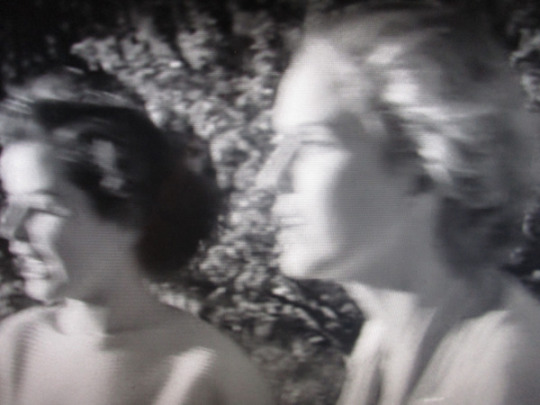
By way of a tonal cue, the preamble pertains to very young children being hidden in play along the shore and thereby a worry. The kids embrace the hidden side, and gently (this being the area of gentrification) reap a scolding from the forces of pedestrian safety. Later, when dusk falls and the mysterious forest and sky are given a quick view, the darkness speaks to no one on the premises.
Not that the startling is entirely absent. But, as we get down to business, the startling, here, brings dangers of serious destruction. The aspect of incest in the few films we find ourselves in the midst of, consists of only one of the ravages bearing down upon a population rife with crude advantage. Once again, as so often, our guide tries to take us by the hand and confront the ravenousness needing to be outmaneuvered. These films do not present the traditional soothing which mainstream film viewers crave. In sharp contrast—along with scintillating drama—we meet an endeavor as to an unsung ontology (an unsung dynamics), where mathematics are not the rule and paradox go to school, forever! The several surprising approaches punctuating the scenario, with touches of cosmic, ironic force, offer the viewer a highway of daring, not for shut ins, not for pedantic, “intellectual” craving.
Those worried women compose a gaggle of patricians (the credits showing a rococo idyll), being a major target of Bergman’s critique. This film, in fact, being a vigorous scrutiny of that social power-play, rotten to the core. The women at the seashore are in anticipation of the arrival of the moneybags about to grace an instance of idleness and lavishness. They think to improve—one of them cursing her fate about a dull spouse—by commiseration in the failings of their households. In doing so, the women reveal that their attentions are, with a slight exception, feeble. But this being Bergman, strengths also reign, to possible rich enlightenment.

With the rubric in the air, “It can’t be meant to be that way,” Rakel, addressing the group, begins with, “You’re not as unique as you as you think…I remember the day Eugene and I were forced to wake up and face the situation. It was both ridiculous and appalling. But that’s nothing to talk about…” More naïve interjection insists, “Why not? We can learn something about each other, and thereby make it easier living together during our vacation and maybe afterwards as well…” Rakel—a lady with a bombshell—takes a breath and remarks, “Well, if you want to… It was two years ago. Eugene and I were alone out there that summer. Eugene was writing his history thesis, and I took care of the house. Upstairs and idle at her mirror, her brother Kaj walks in. ‘Good day, little Rakel.’” (The relationship is never explicit, but on the other hand it is crystal clear.) “Where’s your wife?” she demands. His statement of fact is, “She can’t make it. She didn’t feel well with her pregnancy.” Another statement of fact is by Rakel, namely, “Eugene has gone to town.” (Kaj is there for another going to town.) As to Eugene’s studies, the visitor sneers, “Colossally interesting!” She maintains, “Eugene has always been interested in antiques”[and their capacity to deliver quiet treasures]. That he’s despised by the affluent family having to keep Rakel and her supposedly useless husband afloat, becomes another “Colossally interesting” juncture, namely a license to make love to his sister. He fondles her neck. And soon, after feeble resistance, they share a passionate kiss. He continues, “You’re just like when we were kids. You’re as soft and indulgent. Just as pretty and fragrant. And just as flushed and irritated afterwards.” Her stance, as it veers crazily, comes to, “No, thanks, Kaj. That’s good enough.” (She goes back to the dresser and her image in the mirror flies wild and ignored.) “You’re probably talented and wonderful; but I’m very much in love with Eugene…” He, not to be fooled upon this matter, quietly rebuts, “I can tell by your nose that you’re lying.” She feebly cries, “I really do love him… Get away… And you have a wife…” The unrepentant crasher ridicules his sister with, “You have pangs, Rakel, yes, of morality.” This hard-core soap opera says very little of interest about those in action, but very much about a planet needing to drop dead. Nostalgic Kaj perseveres with, “They [the pangs] are located in your stomach, and can be operated on like your appendix… Have you told your husband we were in love when we were young?” (Apparently the matter had been smoothed over by illusion that they were only toddlers.) He rushes to her gut. She holds him there. (Far less emphatic is her spiel. “No, it’s madness! Don’t you understand? It can’t be like this.”) A fiery kiss follows. He’s brought his swimming trunks and they come to the boat house. She locks the door. Before she takes a swim by way of an egress in the floor, he tells her of a couple whose intensity of lovemaking kills them. He adds, ‘They had strokes… It’s a moral story. It shows the danger of longing.” He claims to be citing Freud. (In Saraband [2003], another bizarre Freud note is struck. Bergman’s seeing the famous exponent of sensibility to be bogus. Rakel calls Kaj’s story “dumb.” His point being that fooling around is the best policy.) Do you remember the time in our childhood when we laid here in the sun completely naked, and compared each other’s shape? We were eight years old. You remember…” She adds, “And [my] dad knocked on the door and said we weren’t allowed to be alone. He had a big hat. And that night there was a thunderstorm. The flagpole snapped in half and burned up.” (Poetry and the putrid intense.) Rakel’s painful appreciation of the “dumb” is too little and too late. “I’ve only been unfaithful toward Eugene once before. It was completely wrong. It will always be completely wrong for me. Something is probably wrong with me. I don’t know. Eugene becomes impatient and berates me.” She looks at Kaj. “Do you think it’s strange?”/ “No, not really…”/ “It was the same time I was unfaithful, needing warmth. I’m probably completely hopeless. Even though I do everything Eugene wants, neither him nor I are happy… When you grabbed me up there in the room, and pressed your head against my stomach… it was so strange [now not completely wrong?]. You have to be nice to me.” Kaj the reasoner, promises, “I’ll be just like you want.” He kisses her shoulder from behind. Fade to the moonlight on the water. The water’s stature. Their statures elsewhere.
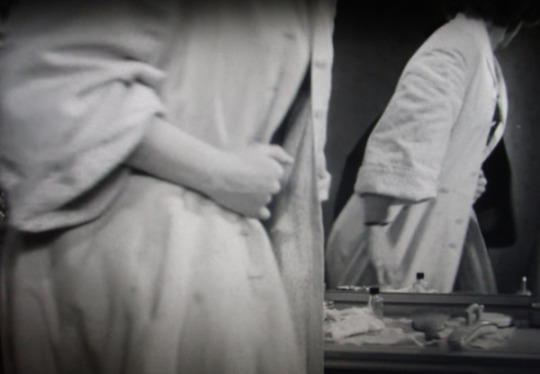
Next day the roaming brother-in-law bests Eugene at shooting targets at a bull’s-eye. The unflappable intruder sees no need to be modest about his shooting. “I can crown myself champion now.” (Champion of what? Champion of destruction being too gutless to grow up? Certainly being useless in managing dynamics.) Earlier that day, Rakel had mastery of their sailboat. An athlete, but incomplete. Eugene is surprised to hear that Rakel was skittish in a blustery sea. Over drinks she smashes her glass. “It’s disgusting, disgusting, disgusting…,” she shouts. (Eugene is alarmed.) She asks Kaj, “How can you? What kind of a man are you?” His response is spot on: “A bastard, like everyone else. Nothing.” She counters, “No, you’re a coward. A terrible coward.” (A moment to savor a hilt of human corruption.) On the winds of her courage, Rakel flashes out, “That’s why I’m going to tell Eugene that we cheated on him today… You think I enjoy sleeping with you, don’t you? Because you’re a nice, talented and considerate lover. But let me tell you something, Kaj. You disgust me. And you’re not a good lover… You only love yourself. Only yourself, and nobody else in the entire world. Only yourself.” He retorts, “If I’m disgusting, so are you, my dear, Rakel. (Bergman in full flight. A nuclear meltdown, as only he could frame it. And a toss away of melodramatic hopelessness. All in the service of taking the step away from dotage to religion and science, and their pedantry, their advantage and their flaming cowardice.) The incestuous patrician insists, “You needed that. Eugene always denied you.” (Maybe he didn’t find intercourse the most important thing in the world.) “And I gave it to you. And now you mock me afterwards…” (A case for an ombudsman?)
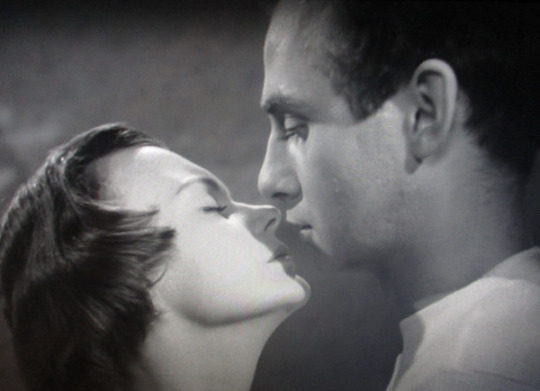
The aftermath comprises a triumph of sorts, in making what some folks call reality. “You slept with him?” the bookworm asks./ “Yes, Eugene, I cheated on you. And I’m not asking for your forgiveness.” Eugene’s fragile notion of pedantry does not stomach full bore errantry. “You have destroyed my entire existence. You, the only person I ever trusted.” He swings into divorce matters which do not maintain the pepper. “The one thing I can’t stand is to be exposed to others” [to fail in pedantry and advantage]. He suddenly covers his face. Rakel kneels by his seat. “What is it? Can I help you?… Can you realize that we have to try and get through this together. We have to forgive each other. I know we can, if we want to, you and me.” (His mind turns to, “I should probably have a talk with Kaj’s poor wife. It’s unnecessary for her to walk through life unaware, like I have.”) “Don’t do anything you might regret.” At this point we have an impressive form of blustery sea within their hearts. As to regret, Eugene can’t resist saying, “You’re one to talk! If I wanted, I could kill you. It would feel liberating.”/ She tells him, “You’re just a bastard! I don’t know what’s become of me, but I’ve probably gone mad. Why should I help you? I’m not your property that you can treat as you want.” He rushes toward her. He grabs the gun and runs out to a nature he doesn’t deserve. After a farcical rescue by a more measured soul, the latter floats the dubious notion, “The worst is not to be deceived but to be alone.” As we slog through this hugely presumptions, and not all that unusual family, “to be alone” seems pretty good.
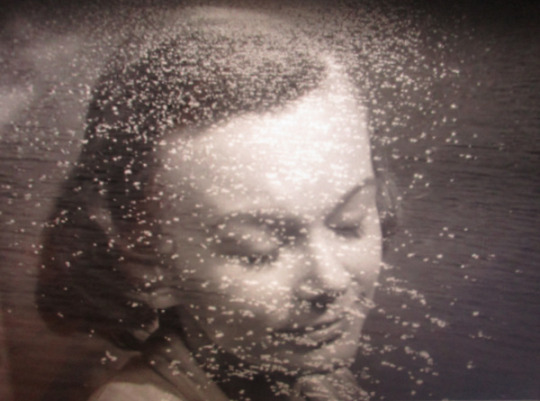
Back in “real time,” Rakel tells the ladies, “We shouldn’t be affected by men’s silly need for prestige and secrecy. We should talk to each other more openly and more often.” As to her unusual background and tastes, discretion reigns questionably. “You might think the story seems ridiculous. And it probably is.” But does “ridiculous” well cover the action. (In another episode to come, at another family gala, the leading light of the corporation is heard to describe Eugene being the black sheep of the family.) Rakel and Eugene subside to near paralysis. But Rakel, the fountain of small gifts, thinks their lives to be quite fine. She’s asked, “Are things better now than before?”/ “Probably not,” Rakel admits, “for Eugene, but for me.”/ “How do you mean?”/ “I’ve come to realize that Eugene is my child… It’s my duty to take care of him. I feel sorry for him. He suffers greatly from what he calls his meaninglessness… Yet he means everything to me now.” The ladies call this “beautiful.” (She adds, “Sentimental, maybe. I don’t know. But Eugene is my meaning in life. We support each other in that way… It’s very simple.”
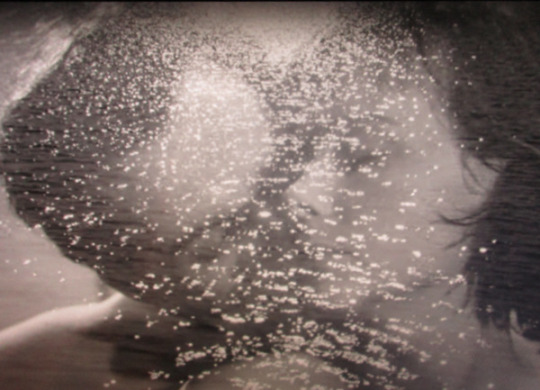
A little turn around the coffee table, and we have Marta, “Kaj’s poor wife.” “Since Rakel has been so brave [another unsound description] to tell of her awakening, I’ll have to show some courage and tell about mine… It was in Paris, three years ago.” Some exacting structure is in play here, due to, not one, but two flashbacks. The Paris incident coming later, while being chronologically first; the Stockholm incident, with Marta in her eighth month of pregnancy to Kaj, coming to us first. Her first statement is well put: “I had suspicions… I was awakened by the contractions…” She drops a water glass and reaches down to her lovely feet and hands. Those digits could be, if not the most, at least an almost equal to the most important phenomenon in sight. But it takes another, more daring, black sheep to make it shine. She primly packs a small bag and a rather large, framed photo of Kaj. (A premature birth on tap.) Someone, at the frosted glass door, appears and disappears. “There had to be an explanation. Yet I was overcome by a paralyzing fear of dying. And my loneliness was suddenly the loneliness of death ” (Many years later, with the film, Face to Face [1976], that apparition becomes active as a black sheep whom the protagonist needs to know well.) The other singularity is her kitten, whom she palms off to the cares of the maternity department. (Never neglect an animal. It’s your better.) The Marta in the film, To Joy, turns out to be overdependent to family ease and middling skill. Already, in this episode, we hear Kaj (AKA, Martin) unwelcome (the message from Eugene). “Don’t you want to answer? You can’t treat me like I’ve committed a crime… Don’t toy with me. I didn’t know better…”/ “You are the way you are, poor thing. I never want to marry you.”
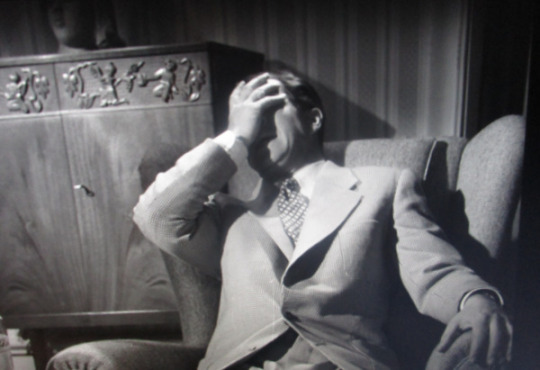
Waiting in the hospital for her baby to come, Marta has a reverie of the Paris days. The shadows of dancing leaves on the wall of her room become the dancing women in the cancan dance hall. “I was in Paris again, and in that awful nightclub.” (Young and snobbish.) Splits; but real splits take more than that. Her date is a G.I. who bores her. She has some trouble getting away from the man’s man in order to win a bottle of champagne by holding her thighs around a two-frank piece. Another rich youngster at the club, namely, Kaj, who, Hollywood style, was her neighbor at the hotel, and easily seen to be more saucy than the date, attracts her that night at the Toulouse-Lautrec shrine. She adds, “The Swedish painter who was always so diligent with his paintings, not to mention being of the same language.” (You can, however, have the same wording, without having the same language.) Back at the cancan, the “diligent” had sent a server to her table delivering a becoming sketch of her and the stiff being a Rocky Mountain goat. (Always about advantage.) Marta, from her poor little rich girl perspective, opines, “I had to admit that his indifference toward me irritated me…” (“He was cute.”)
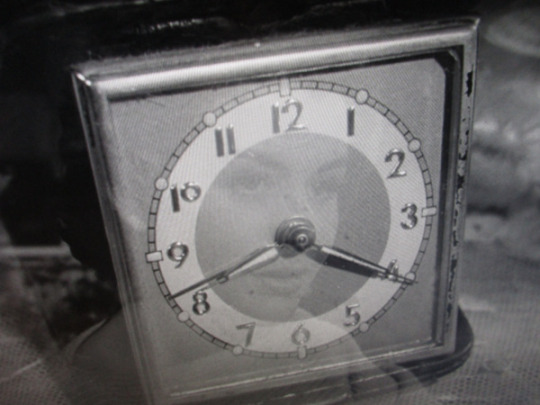
From there, we have an episode inspired by Audrey Hepburn. She ditches her overreaching date by escaping the parked taxi in leaving the champagne bottle on the street to lure him being left on the pavement, while she returns to the cab and the hotel of the “cute” stranger, the strange romantic. Reaching her bohemian vantage point, we notice the hotel’s name, “Le Tournant,” (the turning)—far more complicated than she had ever imagined. (The enterprise next door to the hotel is called , “singed chops.”) Passing the landing, she enters her room and finds that the lamp doesn’t work. Darkness that she could never have imagined. (She tries a second lamp, only to find nothing—her future.) Moving to the window she’s confronted with a fantasy moonlight. (The moon, a bright curtain and Marta. A task of friskiness never touched. Nevertheless, she raises her arms in some kind of triumph.) That was the moment for Kaj to pounce, carefully. Something comes under the door. She grabs the paper and hears the beginning of his orders. “Open the door, but only a crack.” He presents her with a glass of wine. While she sips her wine, he recites a poem. “Marta is a blossoming tree. She is as bright as a little fish./ Why are your eyes so sad, Marta?” (Perhaps the touch of moonlight presented a problematic he would never know, being a confirmed “Nothing.”) “Your true love is sitting outside, rippling your door in the flickering moonlight./ Right now my love has no limit. Yes, eternal is my love at this moment…” She feels that her unique daring has begun to reap its rewards. (Advantage all over Paris.) “Let me be,” the dubious friend gushes. “Let us play in front of the poor, the sick, the terrible… Let us play in front of death itself… My sister (sic), my bride, my blossoming tree.” He adds some fiddling on his guitar. Then he presents her with a small sculpture in her image. She ventures into the dark hallway, where his hand is illuminated from a strange source, and the arrogance from him, as supported by her, begins the train wreck.
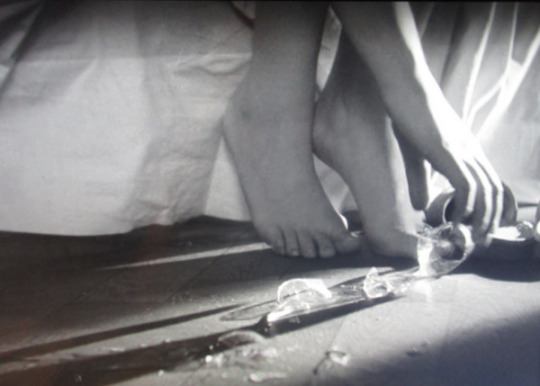
The whirlwind romance is not without rare beauties of the City of Light. Despite their various superficialities, a strain of ambiguity gives them a fleeting pass of frisson. They begin their tour at Sacre Coeur Basilica and its links to real art. The alphas commandeer a horse-driven cart, setting off their march to the Arc de Triomphe, where serious sacrifice may be noticed. The play of sunlight and shadows from the foliage institutes something deft and loving, far beyond their concerns. At a stand of large, magnificent trees two dead presences along the Seine where they had rented a rowboat. At a lull for a nap in the bottom of the boat, Marta’s thoughts return to her other adventure. The preamble of the departure finds her leaving a gynecologist’s with a big smile on her face. She’s close to the river and immediately goes up to a baby and her mother, enjoying a warm, sunny day. She smiles to the baby, and the baby smiles to her. But when an elderly man also enjoys the company of the baby, Marta, losing her sense of priority, quickly leaves with an angry look. (At the end of the film, we’ll find Marta making a disinterested, generous decision. It is the capacity to make such a gesture, after many faux pas, which matters in this saga of dynamics, where families don’t count. On the other hand, we have the inexplicable mystery of the vanishing of Marta’s child. At the outset of her episode, Marta’s parents are mentioned going on a vacation. Do they cover that drama?)
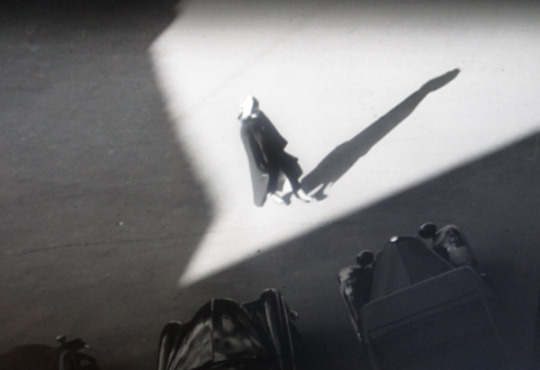
The two are routed by the “iconic” family. (“Martin has chosen the wrong occupation.”) Marta, lost in the shuffle, chooses not to tell of their baby. The sweaty arts at the maternity ward now take over. The waterfall on the Parisian canal reshapes to the birth. Filtering out the strong from the weak becomes a labor that never ends. The nurse encourages Marta to count to five. Another venture consists of that figure at the door, only for grown-ups. (Her baby seen trying to fathom her mother. Squeezing her face. Kaj joins in. He kisses her.) Marta’s baby at the maternity ward. She glowing… First simple moments of a long, difficult life.
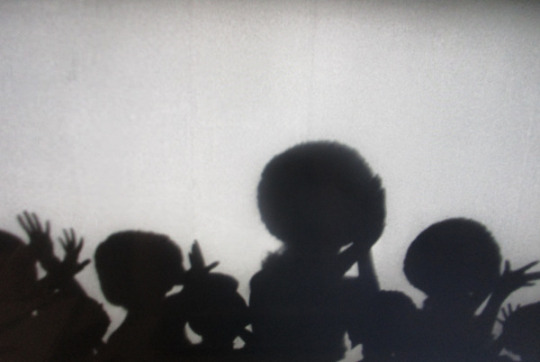
Back at the coffee table, a perception- deficit looms. “That was a real nice story.” (The flashback of this depressive romance is not only outrageous, but it’s lacking in strict temporality.) The matter is saved by adding, “But why did you end up marrying Martin?”/ “I love him.”/ “You should have lived on your own with your child and fought for yourself. That would have been style!” The opinionated speaker is Maj, Marta’s young sister. She continues, “You ruined it by compromising.” The jumbler argues, “Life isn’t so stylish, dear.”/ “Life is what you make of it.”
On that note, Karin, wife of the CEO, prepares the women for not having much to tell, but being funny, not a dramatic discovery. At a centennial gala of the corporation, with the Crown Prince in attendance, Karin approaches Kaj, “How’s your wife?” He corrects her, “She isn’t my wife” (technically). One of the other women had remarked she saw Marta in town and she looked to be in the last month. That elicits from the non-black sheep, “So what! She doesn’t care about me. She won’t even talk to me on the phone. I’ve begged her to marry me, but she doesn’t want to. Can you believe it? She says that I’m incorrigible. She won’t even give me a chance.” That was one, inflected, dead-end. Here comes another.
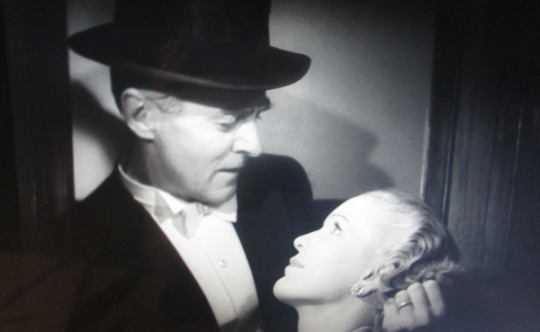
Karin (on the way home) is driving, due to her husband’s having had quite a bit to drink. From the back seat, Fredrik discusses his understanding of “style.” “I’ve made Father’s company into a worldwide organization, which we own 79% of the shares. Personally, I am in the prime of my life, full of job satisfaction, energy and great ideas for the future which appears quite bright… I’m revolutionizing our export industry… I’m a little drunk…” (Karin, played by actress, Eva Dahlbeck, had also played the part of a high spirited and very limited wife to a renowned gynecologist in the film, A Lesson in Love [1951], where her husband was played by actor, Gunnar Bjornstrand, who takes up the role of Fredrik here. She being perfect to tell the 79%, “And you don’t have any friends, either.”) Cruising on, the millionaire brags, “I sleep well. My stomach’s fine [a touch of irony]… Good teeth… It is as if annoyance abruptly fled the moment I showed myself…” She inserts the motion of irony when responding, “You truly are exceptional.” He takes the route of great geniuses, when using the cliché, “No man is great in the presence of their wife.” She ripostes, “God is probably not married.”
That kind of contention will flow beyond the drive and into their elevator, which promptly breaks down. In addition to various slapstick routines related to attempting to escape the little jail, some personal issues of note get illuminated. By way of a profound rubric, we are eventually provided with the repair man telling Fredrik, “The distress button is broken.” The man who will tell you he is always right makes a big mistake, in broaching the matter, “Have you ever been unfaithful to me?” Karin, the wit, of course, would have to say, “Sure,” leaving him to ask, “Really?”/ “And you acknowledge it, just like that!”/ “You asked me.” He goes on, “Has this occurred often with different people?”/ “Yes, of course. What did you think?” Fredrik asks, “Do you have a lover at the moment?” She explains, “I have two, but I don’t know which one to choose… Exciting, don’t you think?” Fredrik becomes annoyed—“I am still your husband.” This opens the question for Karin to ask, “How many times have you been unfaithful to me?” She points her finger at him, and the tone, “the style,” becomes dark. He refuses to touch such a matter, being so remote from his integrity. But that doesn’t stop him from declaring, “I have never been unfaithful to you.” Karin, trying to defuse a moment far from her best, tells him, “What I said was just in fun.” But Mr. Perfect pounces to the tune of, “You don’t have any proof.” This overbearing thrust by him causes her to look for blood. “Actually, I do” [have proof]./ “What?” he challenges./ “Now you’re scared, aren’t you? Well, well, well!” (Cut to Fredrik, shocked.) She hasn’t any more playful style this long night and, after hearing him sneer, “I think you’re bluffing, dear,” she replies, “I’ll just say a name… Diana.” (He sits down, deflated.) She sneers, rather tritely, “He’s blushing like a schoolboy. A little boy caught with his fingers in the cookie jar…” (Advantage without tempering.) His adjustment is, “She was crazy, so it ended very quickly.” Karin adds, “Did you know that that 19-year-old American put two detectives on you? For two years, she watched your every step.” That Karin overdoes the facts—”all your adventures over the last two years… I have the list here in my purse”—becomes, rather than a little joke, a (momentary) trajectory for severing their relationship. He tells her, in this desperate embarrassment, “Almost every episode I’ve had has been fun. I’ve never regretted it. Each of us lives our own lives.”
His leg cramp and her massage is all it takes to recover their famous love. A policy of ironic generosity has reinstated the powers they live for. They live for being two disparate vehicles. When the morning arrives, the custodial crew and a few of the cleaners laugh as the elects ascend to their penthouse.

One other constellation, very unlike those who have shown us the sadness of the weak, bring to us their readiness to meet a new day. Coming to us, first of all, after the story of the plight of Marta, the girl chasing “style,” namely, Maj, is now accompanied by her boyfriend, Henrik, calling her to go out the open window and go a long way. Henrik had just been told by the family high flyers, who shut the door upon Kaj’s surely hopeless arts dabbling, that he was to enroll in a business program at a university. He resolves not to pursue what he might meet in the way of constrictedness (but, on the other hand possibly something quite fascinating). His plans had been to see what the wide world meant. Only running away from the overrated family could fit the bill. Of course, Maj would be his soulmate in plumbing the ways of style. In the confusion of the arrival of the menfolk’s dispensing with introspection (Marta, in a distant shot, passionately hurling herself upon the widespread lover), Marta rushes upstairs to put on better clothes, where she bumps into Maj packing her bag. The brush goes like this: “Are you going to stop me?”/ “Yes, I am.” / “With force?”/ “If necessary… I’m responsible for you.” Maj moves the action to better focus: “Should you talk about responsibility when you’ve been so irresponsible and done so much?”/ “I beg you, Maj…” / “I don’t care. I know what I want…” After a pause, they embrace. After a glitch with the motorboat, they move for their moment. (Cuts between a noisy dance party and the dark, silent waters.) En route, they do have something to say, particularly Maj. “Swear that you’ll always love me as much as tonight.”/ “I swear.”/ “Swear that you’ll never compromise, never stray, never lie, cheat or behave like everybody else.” / “I swear…”/ “Because otherwise we might as well be dead…” Cut to Marta on the veranda, speaking with a quiet reveler who notices the distant departure. She tells him, “They’ll be back in time.” (She covers her face. The water is calm. She is not.) She tells him, “I’m just so happy.” (Yes and no.) A last look at their boat, about to test their seaworthiness, their style, which could mean they won’t be back, pending a ripple of play with nature itself, and an integral play of attending to creature comforts.
0 notes
Text
How Wonder Woman 1984’s Practical Effects Set it Apart
https://ift.tt/eA8V8J
Going back to Themyscira is one of the most anticipated aspects of Wonder Woman 1984. For many fans, the Amazons were the highlight of the original film and an all-Amazon movie can’t come soon enough. The physical prowess and the pure joy of seeing so many women not only in combat, but engaging in fight choreography that’s developed around their physical attributes/gifts/features, is a rare and wonderful thing. The resulting actions sequences were unlike anything on screen before: highly stylized yet clearly effective.
Heading into WW84, director Patty Jenkins and her team (which now includes Gal Gadot as a producer) had a reputation to uphold, and then some.
“There was just no way we’re going to take any shortcuts,” Gadot said during a WW1984 press conference. “And we’re just going to raise the bar and give everything we have because we knew people were so invested with the character and cared so much about her.”
One of the biggest opportunities for action on an epic scale is the so-called Amazon Olympics, an extended opening sequence from Diana’s childhood, where she competed against some of Themyscira’s best in a triathlon of sorts involving an obstacle course high in the air, swimming, and archery on horseback. Lilly Aspell returns to play young Diana who’s now 10 years old. She did at least five months of training to run the obstacle course, which she actually runs through herself. Some of the more fantastical elements are enhanced with green screen and CGI for her safety, but all of the running, jumping, climbing, and swimming is Lilly herself.
If the Amazons were the high point of the first movie, the unequivocal low point was the final fight in the third act, a messy overlong CGI spectacle that felt out of step with the spirit of the warm, character-driven movie audiences had fallen in love with up until that point. While no one mentioned it by name in interviews, it’s not hard to imagine that’s what Jenkins is keen to avoid when she talks about avoiding CGI action – or when Chris Pine refers to “cataclysmic computer graphics explosion nonsense.”
As star Gal Gadot put it: “Patty really made a point about wanting to have a minimum amount of CGI in our movies. So most of the stuff that you’re going to see is real people doing the real thing. Whether it’s us or the stunt people, it’s real people. So it took much longer. You have to prep and to rehearse much longer.”
Gadot calls WW84 “the hardest movie I ever got to shoot by far” but also says it was worth it.
“[The first movie] was received in such an amazing way that there was just no way we’re going to take any shortcuts. And we’re just going to raise the bar and give everything we have because we knew people were so invested with the character and cared so much about her,” said Gadot. “When you see it in the movie … you can just tell that it’s the real deal. You can see by the face expressions that it’s real. You can see the weight and the movement and the speed.”
Practical effects have major advantages, and directors like George Miller and David Leitch, who directed female starring action movies Mad Max: Fury Road and Atomic Blonde, respectively, are big fans. But there are disadvantages as well.
“The hardest parts were just how demanding the shoots were and how physical it was, because it was very important for Patty that we do minimum amount of CGI,” Gadot told Den of Geek and other outlets during a recent press event “So most of the stuff that you see—the running on Penn Avenue, the Amazon sequence, the fight with Cheetah—most of it, it’s real people doing it for real. And for the obvious reasons, it took longer to shoot and it’s very tiring on your body. But then you see the result and I was so satisfied with it cause I was like, ‘Oh my God, you can see the difference. You can tell the difference between real action to CGI action. You can see it in the way that we move, that we hold, our faces, our bodies.’ So that was the hardest part. The rest of it, honestly, Wonder Woman feels like a second home for me.”
There’s a decent amount of wire work in the film which, as Gadot pointed out, isn’t exactly new so much as something that’s fallen a bit out of favor with the rise of CGI.
As fans of the comics know, and the trailer has alluded to, Diana and Barbara have a relationship of sorts before Cheetah enters the picture. Gadot, Jenkins, and Wiig discussed the unique nature of their climactic altercation at a press conference for WW84.
“And I think Gal and I talking about this from the very start,” recalls Jenkins, “saying, ‘However they would fight, it would be completely different. And they’re friends.’ Right? Or at least they have this friendship in the past. It’s not about punching in the face … They’re both trying to literally get the other one under control. … So, narratively, it was fascinating, and then how it would work spatially was fascinating, and then executing it was long and laborious and wild.”
“I don’t think I’ve ever seen anything like this before,” Gadot says. “It’s not like when you see women try to fight like men. No, we’re females, our bodies are different, the way we move is different and this is how we do it. And just to see it, it was so great.”
Each part of the set was carefully designed around the needs of the fight choreography. Eagle-eyed viewers might pick up on a railing or two that play key roles in how the performers bring the action to life.
“We designed what we wanted something to feel like and look like and what the moves were. And then we had to build. There was no stage big enough in the world so we had to build the stage,” Jenkins says. “And then we had to build all those things. And then we have Cirque du Soleil performers practicing them and showing us what things are going to look like. And then these guys have to end up doing it. And so it was incredible, but it was fun to really aspire.”
Of course many fans are simply worried how Cheetah herself will look. As Cinema Blend helpfully points out, while Cats and WW84 were made around the same time (and filmed in adjoining studios) Kristen Wiig looks significantly better than the cast of that delightful little monstrosity.
“Finding the right blend of prosthetics and CG to make that transformation was… it took a ton of (research and development),” Jenkins told Cinema Blend. “It started from the day I started it, and we didn’t complete it until the day we finished. It was so complex trying to figure how to pull off that character. I would lose so much sleep over it. Honestly. Because I was like, it could go so wrong. The first thing I did when I got on to the movie was that they said, ‘We can do this all CG. We can put hair on people.’ And I was like, ‘Show me the best example of that.’ And I saw it, and I said, ‘That’s not good enough. If that’s where our technology is, that is not good enough.’ … Cats was shooting on the stage next to us, and I knew that they were going through the same thing. And then I heard that they were just going to do it in CG. And I was like, ‘I hope it works out for you!’ But I’ve never been so thankful for the process I went through.”
It’s worth noting that while they were filmed at the same time, WW84 is coming out a full year after Cats. The VFX artists who worked on Cats were famously mistreated, rushed to put out an inferior product in order to make financial and awards show deadlines (the latter of which they missed) and then many were laid off and their work publicly derided, an all-too-common occurrence in the industry. Nevertheless, Jenkins once more opted for practical effects as much as possible, and held off on incorporating CGI until absolutely necessary.
“I didn’t want Kristen’s face to become some animated bizarreness. So then we ended up doing tons of prosthetics. Real work. And we only took over certain parts of her body. The rest of it is prosthetics.”
Perhaps most importantly, the action in WW84 is an extension of characterization and moves the plot forward—one of the biggest advantages of using practical effects and a reason actors often cite when they insist on doing as many of their own stunts as possible. The opening sequence in Themyscira illustrates a lesson that shaped who Diana is as a person. Her relationship with Barbara informs her tactics in battle. Her stance on violence and war in the first film—a tricky but welcome one for the genre—is refined here, and directly impacts how she fights.
Wonder Woman isn’t just a demi-goddess who punches her way to victory—how, who, and when she fights matters, both behind the scenes and within the story.
The post How Wonder Woman 1984’s Practical Effects Set it Apart appeared first on Den of Geek.
from Den of Geek https://ift.tt/3puwylZ
0 notes
Text
2020.12.13: The Beginning and Writing
Alright, so what went on this week?
I feel like I'm getting better at writing more frequently. The frequency being the issue first, the editing and grammar being the secondary issue. My diction's a little smaller than I'd like it to be, so I'll be sure to catch up on some reading by the time my vacation comes around.
I've noticed a lot of the prompts that I pull from Reddit tend to be written in the first person. I understand the function, as it allows a reader to become fully immersed in exactly what a character is thinking and feeling in any given moment, but I find that it more often than not covers up my poor grammatical skills.
Also, trying to get these all done in one run-through, without going back to edit or reformat between posting sites, is pretty cringe-inducing. There's nothing like writing an actually decent story, only to realize that the site you posted it to reformatted the entire thing so that all of the text is in one big block.
When I get to coding, I should be sure to look for any issue like this on the site.
I also learned how transparent it is when you slack off. One day this past week I wasn't feeling my writing and I can tell the people that did read it weren't feeling it either. I have to stay focused, not so much motivated. Sitting around waiting for motivation has done nothing but cause me trouble and shape me into a procrastinator.
That being said, I do have to keep my desire to leave at the forefront of my mind.
It's a strange feeling I get when I think about my family. Maybe I listened to too much Bush-era American rock music, but I'm tired of my hometown.
For a number of reasons.
But, when it comes to my family, I just get the sinking feeling that they're fine with everything around them being less than ideal. That they'll complain about something someone else needs to do for them rather than take the time to look inward. They aren't so unreasonable as to thrust all of their issues onto strangers or things like that. You could compare their grievances to things like, "This person who's job it is to do this things isn't doing this thing specifically how I want it to be done."
Whereas I'm trying to shift my response to be, "Can I do this thing? No? Screw it then."
As such, I'm actively no longer complaining.
No asking if someone else can turn the music down because I have work in the morning. No explaining why breeding the dog is a terrible, terrible idea. No asking why every room in the house smells like weed. Just me, focusing on getting out so I don't have to concern myself with these issues.
Because of all the people here, I'm the only one who seems to have an issue with any of this.
I've spent the last three years rooming with a friend in a shared apartment and did nothing but goof off because I had my friend around.
And this is the result of that goofing off. Back in my childhood home, typing away at a computer at night following a day of working. My job may be better than it was when I was at my lowest point in 2015-16, but I can't let my contentment with my job lead me to more complacency with my future.
I need to work harder.
I get this sinking feeling in my stomach whenever I think about what I should be doing. In the context of this, so many things cross my mind.
"It's getting late. Aren't you going to write 750 words today?"
"That last writing prompt bombed pretty hard, so why not take a day off?"
"It's Sunday. Are you going to post another one of those blogs on the internet?"
"No one's going to read it, you know?"
"You quit before and you'll quit again. How long do you think you can keep this up?"
"Your writing is terrible. Third-person, first-person, blog, it's all trash that's going to be ignored."
"Is this title/phrase/sentence just you trying to be baity? Do you think that's going to give you clicks?"
"Who do you really think is going to read this? You post in the dead of night and work all day, idiot."
"No one likes social media. Do something else."
"Magic the Gathering has better stories than you do."
"Critical Role has better stories than you do."
"The SCP Foundation has better stories than you do."
"All of your favorite mangaka have better stories than you do."
"You ever think that now that they're remaking Shaman King, that niche thing that you thought only you still cared about and had an opinion on will suddenly become mainstream, gain all the acclaim it deserves, and your take on the story will be drowned out by a plethora of actually competent reviewers who actually chose to go to school for things like English and Literature and Journalism?"
"I know that going to school again would damn you in the future, but don't you think it'd at least be a little better than trying to become known through scratch?"
"Trick question; you'll fail either way."
"You really padded this out didn't you? It may just end up getting bunched up on DeviantArt again though."
A friend of mine asked me a few months ago if writing was my passion. And I told her yes.
But, I don't know if that's true.
I love making up stories. The first story I ever created was spawned from a terrible, terrible drawing.
My friend Emmanuel had broken his arm riding his bike, so I drew a hero called 'Kast Man, King of the Kanyon'; the words were spelled with Ks because it was the early 2000s and there was nothing a K or Z couldn't sell. The drawing was exactly what you'd expect of a six-year-old who liked Dragon Ball Z. The guy was overly-buff in an non-biologically acceptable way, had upright, spiky hair, a monkey's tail, and no ears because he was facing forwards and you couldn't see ears from the front I decided.
From this one-off drawing, I began visualizing a theme song that was just the hero's name and title followed by the occasional "Ooooh"; as you would expect from a six-year-old who liked Sonic the Hedgehog.
I got into the habit of taking aspects from all the different media I consumed, mostly animated, and marrying them into one, jumbled mess of a story. This also led to me talking to myself. I didn't know why, but I just really needed to talk to myself and narrate this story happening in my head.
We used to keep a lot of rubber bands around the house for reasons I don't know and my imagination would be most active when I was playing with one. I frequently snapped them on my wrists, chewed on them, stretched them, broke them, and slept with them. When I accidently flung one in the midst of play, it was like watching television and having the power cut out. I'd just stop abruptly and frantically try to look for it. And, if I couldn't find it, I'd get a tight feeling in my chest and resign myself to sleep, unable to see the conclusion of my story until I picked up another rubber band.
This habit really freaked out the people who lived with me; mom, grandmother, uncle, and brother. To this day none of them realize what was going on.
The habit eventually switched to pencils, which I thankfully didn't sleep with, until it reached the point where I didn't need a tool of any sort at all.
This is where things got out of hand. You know how when you were younger and you saw an action movie, you'd have all this energy and just move your body in all these bizarre ways because it felt good? Like you could take on the world?
That was the next step throughout middle school.
And throughout high school.
And throughout college.
And throughout my return home.
And throughout living with my roommates.
We called it "pacing" in my house hold. Though, more often than not, if featured punching, jogging, skipping, jumping, and lots of talking to myself. I'd been caught multiple times by relatives and friends, none understanding what was going on.
Imagine getting caught masturbating, but having someone walk in every other day and everyone hearing you do it everyday.
I really toned it down while living with my roommates and now I'll just take a break to walk the floor, legitimately pacing this time, and get my thoughts together. The talking-to-myself hasn't stopped though.
It feels a little nice to explain this somewhere, even if no one but me will ever see it.
So, pulling it back to my friend's question about writing being my passion. I don't think it is.
Storytelling is my passion. I can pitch ideas, share events, or retell things I've heard, read, or seen with ease and confidence. The part wherein I have to sit down and write is the frustration, exhausting part. But, it gives me a sense of accomplishment when I'm done.
So I don't think writing is my passion. Storytelling is my passion, writing is my purpose and the medium through which I am most effectively able to share my stories.
And given how fulfilled I feel when I'm completed, and on the occasion that someone does respond to something I've written, I consider what I'm doing worthwhile. I just have to get focused on the act of doing rather than the end result.
That's what I need to do.
0 notes
Text
Why You Forgot Everything You Learned In School (And How To Change That)
Listen, we all feel like we could use a bit of memory training. Let’s start with a small thought experiment. Take a minute to think back to your science classes in high school and see how much you can recall.
Can you explain the elements that make up an atom, or the basic principles of plant biology? How about physics, or simple chemistry? Do facts and procedures come rushing back, or do you remember your teacher’s face, or the way the room smelled after an experiment?
Everyone will have different memories, and they may have very little to do with what you were taught in class. You might not remember anything at all. It’s extraordinary how quickly we manage to forget what we crammed during all those long hours of study. Algebra. Long division. Verbs, adverbs and relative clauses. The causes of World War I. Where did it all go, we muse, years later?
It is extraordinary that so many of the world’s education systems, which are usually based on testing how well a student can recall and apply information, are designed without any real thought of how our memories work. Memory is perhaps the most fundamental factor in how human beings learn. Memory training should inform all aspects of education; instead, it’s an afterthought.
Advances in cognitive science have huge implications for how we learn and remember things. It’s time for policymakers, educators, and anyone who wants to learn something — in other words, all of us — to start listening.
It’s Gotta Be In There Somewhere
Imagine a large, dusty storeroom that contains all the things you’ve ever learned. This is what Robert Bjork, psychology professor at Stanford, calls storage space. Your phone number, the Spanish word for “cat,” the route to get back home from the pub after you’ve had one too many — all these memories are kept inside the storeroom.
So when you try in vain to recall something, the problem is not that you don’t know it. It’s a question of the retrieval strength of the memory: whether you can access it or not. You can remember your current address because it has both high retrieval strength and storage strength, but might struggle to remember your old address because although you knew it well once (high storage strength), you haven’t activated that memory in years (low retrieval strength).
So if you really want to remember something, you need to have it well-situated in your storeroom, as well as know where to find it when you need it. A lot of research in the Bjork Learning and Forgetting Lab centers around “desirable difficulties,” the gist of which is that if something is initially difficult, you will actually learn it more deeply and be able to recall it later on. Desirable difficulties include spacing, where you study in chunks rather than all in one go, testing rather than re-studying the same material, and varying the conditions of practice instead of keeping them constant.
Will This Be On The Test?
Picture the scene, the night before a big exam: coffee, notes, a faint air of panic, cramming, cramming and more cramming.
This is a perfect example of how not to learn something. One of cognitive psychology’s most robust findings, demonstrated consistently in a variety of contexts, is the importance of spaced repetition in memory training. If you want to learn something, do it in chunks over a period of time. Each time you access that memory again, you are increasing its storage strength.
But don’t just read over your notes — test yourself with a short quiz or try to explain what you’re learning to a friend. Frequent low-stakes testing can be really helpful as both a diagnostic tool (to check if you’ve really understood something) as well as an aid to memory improvement.
The spacing intervals are important. Increasing the intervals between learning sessions, and thereby reducing the accessibility of information, actually fosters deeper learning. When you struggle to remember something that you learned a few days ago, you’re forced to work hard and engage with the material more. So you might study something on Monday, do some follow up on Tuesday, take a quiz on Thursday and then another quiz the following week. The gaps between study should initially be small and gradually increase. You want the memories to be difficult to access, but not impossible (there’s no benefit to studying things a year apart).
But what if time is of the essence? Bjork’s findings suggest that interleaving can actually mimic the benefits of spacing. This is where you chop and change what you’re learning. By interspersing different elements, you are effectively “reloading” each time, forcing yourself to learn new strategies to retrieve information. A random order is best.
Get In The Cue
Neuroscientist Daniel Willingham calls memories “residues of thought.” But simply thinking about something is not necessarily enough to create a memory. Why do we remember the things we do? You might remember a beautiful, quaint old ice cream parlor you visited last summer, but not the flavor of ice cream you had. Why would you remember one aspect but not the other?
Much of what we remember is not a result of conscious effort. We remember the aspect of an experience that we think about the most. So if you see a barking dog while going for a stroll, you might think about the sound of the bark, or how the dog looks, or you might wonder if it’s annoying for the neighbors. How you think about the experience will shape that particular memory.
Everyone has had the experience of visiting a place they knew as a child and having memories flood back. Cues are what help us retrieve memories. The creation of specific and detailed cues is the key to remembering things, and Willingham argues that missing or ambiguous cues are a major reason why we can’t recall something. He cites an example of saying to a friend, “Here’s that $20 I owe you,” and the friend saying “You don’t owe me $20.” A better cue would offer more information, like: “Remember, we were at Macy’s and I wanted to buy that shirt, but their computer wouldn’t take my card so I had to borrow cash?”
Let’s try another little experiment:
Look at the following list, and then look away and write down the items. Have a friend read the list to you, if possible.
apple, blueberry, grape, orange, raspberry, watermelon, fig
Did you get most of them? Probably. Your mind instinctively says “This is a list of fruits that I just heard.” Now do the same for this list:
apricot, banana, peach, pear, grapefruit, blackberry, plum
If you didn’t get as many, there’s a reason for that. The cue, “a list of fruits that I just heard,” becomes crowded with correct words (from this list) and incorrect words (from the previous list). If you do a third list of fruits, chances are you will remember even fewer of them. But this one should be easier:
doctor, soldier, firefighter, teacher, chef, secretary
With this list, your mind is able to form a new cue, different and unambiguous.
Think Of A Particular Duck
Willingham identifies several memory training techniques to create effective cues:
Have you ever studied music? If so, how do you remember the lines of the treble clef? My piano teacher taught me that Every Good Boy Deserves Fruit (E-G-B-D-F). When I get east and west mixed up, I remind myself to Never Eat Soggy Weetbix. This method is known as acrostics. Similarly, we can use acronyms, such as HOMES to indicate the great lakes (Huron, Ontario, Michigan, Erie, Superior).
Language learners tackling foreign vocabulary might want to use keywords. If we look at the Spanish word for mushrooms, champiñones, we can see it is very similar to the English word champions. To make a memory cue, try visualizing a champion boxer, arms held aloft in the ring, with mushrooms on his hands instead of boxing gloves.
Music and rhymes are extremely powerful. No doubt you can recall childhood nursery rhymes and chants, and probably a few advertising jingles as well. Songs and chants are predominantly used with young children but are also very effective for adult learners.
Mnemonic associations are best for more abstract things. What if you can never remember if a school administrator is a principal or principle? Just remember that she’s your pal. If you’re learning devnagri (Hindi) script, you might think that the symbol for ja, ज, has a hook, which would be a good place to hang a jacket.
It’s best if these memory training cues are personalized, bizarre, memorable, and specific. Willingham argues that if you want to create a visual image of a duck, “you must think of a particular duck. You must specify its size, proportions, coloring, posture, etc. All of these details make the duck more distinctive, and thus less likely to be confused with other ducks, and therefore a better cue to the target memory.”
Finally, here are a couple of less well-known suggestions if you have to remember a list. One is using pegwords. First, you make up some simple rhyming pegwords like “one is a bun, two is a shoe, three is a tree.” Then if you’re trying to memorize “onion, duck, artist,” you could picture a sad man holding a bun with only onions in it, a duck trying to climb a ladder while wearing oversized shoes, and finally an artist falling out of a tree.
Perhaps the oldest mnemonic device is the method of loci or “memory palace” technique espoused by the Greeks and Romans. This involves creating a kind of mental geography — say a walk from your front door out to the street — and using strong imagery to link certain words to key points along your “mental walk.” Again, bizarre and distinctive imagery works best.
Memory Training Is Forever
Before you rush off to study at spaced intervals, creating clever mnemonic cues to help you with your Italian verbs, one final word of warning:
We constantly overestimate how well we know something. Feeling like you know something is not a very accurate guide — both children and adults consistently “think their learning is more complete than it really is,” according to Willingham.
His rule of thumb is to study until you know the material, and then keep studying, for about another 20 percent of the time you’ve already spent. In other words, because we overestimate our knowledge, we should overlearn by about 20 percent.
The latest in curriculum design from the UK, “mastery curriculum,” is heading in this direction. Its principles include spending more time on fewer subjects, interleaving topics so that learners encounter them early on and then are exposed to them repeatedly over time, and using frequent low-stakes testing, spaced out over varying intervals, to stimulate deeper learning and recall. Babbel and other educational apps also incorporate spaced repetition practices and short quizzes to aid memory retention.
In a world where the importance of human memory seems to be ever diminishing, our understanding of the crucial role of memory training in learning is moving in quite the opposite direction.
The post Why You Forgot Everything You Learned In School (And How To Change That) appeared first on Babbel.
Why You Forgot Everything You Learned In School (And How To Change That) published first on https://premiumedusite.tumblr.com/rss
0 notes
Text
The happy secret to better work | Shawn Achor
New Post has been published on https://hititem.kr/the-happy-secret-to-better-work-shawn-achor-4/
The happy secret to better work | Shawn Achor
After I was once seven years historical and my sister used to be simply 5 years historical, we have been playing on prime of a bunk bed. I was two years older than my sister at the time — I imply, i am two years older than her now — however at the time it supposed she had to do the whole thing that I desired to do, and i wanted to play conflict. So we had been up on prime of our bunk beds. And on one side of the bunk mattress, I had put out all of my G.I.Joe soldiers and weaponry. And on the opposite facet have been all my sister’s My Little Ponies competent for a cavalry charge. There are differing bills of what in reality occurred that afternoon, however considering that my sister shouldn’t be here with us today, let me inform you the genuine story — (Laughter) which is my sister’s a little bit on the clumsy aspect. One way or the other, without any support or push from her older brother in any respect, Amy disappeared off of the top of the bunk bed and landed with this crash on the ground.I nervously peered over the aspect of the mattress to peer what had befallen my fallen sister and saw that she had landed painfully on her fingers and knees on all fours on the ground. I was once frightened on account that my parents had charged me with making certain that my sister and that i played as safely and as quietly as viable. And seeing as how I had by accident broken Amy’s arm only one week before — (Laughter) (Laughter ends) heroically pushing her out of the way in which of an oncoming imaginary sniper bullet, (Laughter) for which i have but to be thanked, I used to be attempting as rough as I could — she did not even see it coming — I used to be trying hard to be on my first-class conduct. And that i saw my sister’s face, this wail of suffering and struggling and surprise threatening to erupt from her mouth and wake my mothers and fathers from the lengthy iciness’s nap for which they’d settled. So I did the one thing my frantic seven yr-ancient brain might feel to do to avert this tragedy.And when you’ve got youngsters, you have got seen this hundreds of thousands of instances. I stated, "Amy, wait. Do not cry. Did you see the way you landed? No human lands on all fours like that. Amy, I suppose this implies you’re a unicorn." (Laughter) Now, that used to be dishonest, due to the fact that there used to be nothing she would want more than not to be Amy the harm five year-ancient little sister, however Amy the precise unicorn. Of path, this alternative used to be open to her mind at no factor previously. And you would see how my terrible, manipulated sister confronted conflict, as her little mind attempted to devote resources to feeling the discomfort and suffering and shock she just skilled, or taking into account her new-observed identity as a unicorn.And the latter received. As an alternative of crying or ceasing our play, as a substitute of waking my parents, with the entire poor penalties for me, a smile unfold across her face and he or she scrambled back up onto the bunk bed with all the grace of a child unicorn — (Laughter) with one damaged leg. What we stumbled across at this gentle age of simply 5 and 7 — we had no idea on the time — used to be used to be going be at the leading edge of a scientific revolution taking place two many years later in the way in which that we look on the human mind. We had stumbled across whatever called optimistic psychology, which is the cause i’m here today and the motive that I wake up every morning. After I began talking about this study external of academia, with businesses and schools, the very first thing they said to in no way do is to begin with a graph.The first thing I need to do is with a graph. This graph looks boring, but it is the motive I get excited and get up every morning. And this graph would not even mean whatever; it’s false information. What we located is — (Laughter) If I bought this data finding out you, i would be extremely joyful, considering the fact that there may be a pattern there, and that signifies that i can get published, which is all that really issues. There’s one bizarre pink dot above the curve, there is one weirdo within the room — i do know who you are, I saw you earlier — that is no obstacle. That’s no obstacle, as most of you know, given that i will be able to just delete that dot. I can delete that dot because that’s clearly a measurement error. And we all know that’s a size error seeing that it’s messing up my information. (Laughter) So one of the crucial first matters we coach individuals in economics, information, industry and psychology courses is how, in a statistically valid manner, do we get rid of the weirdos.How do we get rid of the outliers which will find the road of high-quality fit? Which is incredible if i am seeking to discover how many Advil the average individual must be taking — two. But when i am for your knowledge, or for happiness or productivity or vigour or creativity, we’re growing the cult of the usual with science. If I requested a question like, "How speedy can a little one learn read in a classroom?" scientists trade the reply to "How rapid does the normal little one gain knowledge of learn in that classroom?" and we tailor the category toward the traditional.Should you fall beneath the average, then psychologists get delighted, due to the fact that that means you’re depressed or have a disorder, or optimistically both. We’re hoping for both for the reason that our business mannequin is, if you come into a cure session with one predicament, we wish to be certain you leave realizing you may have ten, so you keep coming again. We are going to return into your childhood if indispensable, however ultimately we want to make you ordinary once more. But typical is only average. And constructive psychology posits that if we learn what’s in simple terms usual, we will be able to remain only natural.Then instead of deleting these optimistic outliers, what I deliberately do is come into a population like this one and say, why? Why are a few of you high above the curve in terms of mental, athletic, musical potential, creativity, vigour levels, resiliency within the face of task, humorousness? Something it is, as an alternative of deleting you, what I need to do is gain knowledge of you. Since perhaps we will glean understanding, now not simply how to transfer folks as much as the ordinary, but transfer the complete usual up in our companies and faculties worldwide. The cause this graph is primary to me is, on the news, the majority of the expertise is not optimistic. In fact it’s negative. Most of it can be about murder, corruption, diseases, normal disasters. And really speedily, my mind begins to consider that’s the correct ratio of negative to constructive in the world. This creates "the medical institution syndrome." in the course of the first 12 months of scientific coaching, as you read via a record of the entire symptoms and diseases, suddenly you appreciate you’ve gotten all of them.(Laughter) i have a brother in-legislation named Bobo, which is a entire other story. Bobo married Amy the unicorn. Bobo referred to as me on the cellphone — (Laughter) from Yale scientific university, and Bobo said, "Shawn, i’ve leprosy." (Laughter) Which, even at Yale, is very rare. But I had no inspiration tips on how to console poor Bobo since he had simply gotten over an entire week of menopause. (Laughter) We’re discovering it’s no longer necessarily the fact that shapes us, however the lens by means of which your brain views the sector that shapes your truth.And if we can change the lens, no longer most effective can we change your happiness, we are able to trade each single academic and industry final result at the same time. I applied to Harvard on a dare. I failed to count on to get in, and my loved ones had no cash for institution. After I acquired a army scholarship two weeks later, they let me go. Some thing that wasn’t even a possibility grew to become a truth. I thought each person there would see it as a privilege as good, that they’d be excited to be there. Even in a lecture room filled with persons smarter than you, I felt you would be glad just to be in that study room.However what I discovered is, whilst some folks experience that, once I graduated after my four years after which spent the next eight years dwelling within the dorms with the students — Harvard requested me to; I wasn’t that guy. (Laughter) I used to be an officer to counsel scholars by means of the elaborate four years. And in my study and my instructing, I found that these pupils, no matter how completely happy they were with their customary success of entering the institution, two weeks later their brains have been centered, no longer on the privilege of being there, nor on their philosophy or physics, however on the competition, the workload, the hassles, stresses, complaints. When I first went in there, I walked into the newcomers dining corridor, which is where my pals from Waco, Texas, which is the place I grew up — i know a few of you already know this. Once they’d discuss with, they’d look round, and say, "This eating corridor looks like whatever out of Hogwart’s." It does, seeing that that was once Hogwart’s and that’s Harvard. And once they see this, they are saying, "Why do you waste your time learning happiness at Harvard? What does a Harvard pupil possibly have got to be sad about?" Embedded within that question is the important thing to working out the science of happiness.Considering what that query assumes is that our external world is predictive of our happiness levels, when surely, if i do know the whole thing about your outside world, i can only predict 10% of your lengthy-term happiness. 90 percentage of your lengthy-time period happiness is predicted now not by means of the external world, however by the way your mind techniques the sector. And if we alter it, if we alter our system for happiness and success, we are able to change the way that we can then have an impact on reality. What we located is that handiest 25% of job successes are anticipated with the aid of IQ, 75 percentage of job successes are predicted by using your optimism phases, your social help and your capability to see stress as a task alternatively of as a threat.I talked to a brand new England boarding college, commonly the most prestigious one, they usually said, "We already be aware of that. So every year, alternatively of just instructing our students, we now have a wellness week. And we’re so excited. Monday night time now we have the arena’s leading trained will speak about adolescent despair. Tuesday night it is tuition violence and bullying. Wednesday night time is consuming issues. Thursday night is illicit drug use. And Friday night time we’re looking to make a decision between dicy sex or happiness." (Laughter) I mentioned, "that’s most persons’s Friday nights." (Laughter) (Applause) Which i am completely satisfied you really liked, however they didn’t like that at all. Silence on the cell. And into the silence, I mentioned, "i might be glad to communicate at your institution, but that’s no longer a well being week, that is a ailment week. You could have outlined all of the poor matters that can happen, however now not talked about the optimistic." The absence of disease is just not wellbeing.Here is how we get to health: We need to reverse the method for happiness and success. Within the last three years, I’ve traveled to 45 international locations, working with schools and businesses in the midst of an economic downturn. And that i found that the majority firms and faculties follow a components for achievement, which is that this: If I work harder, i’m going to be more victorious. And if i’m more positive, then i’ll be happier. That undergirds most of our parenting and managing patterns, the way in which that we motivate our habits. And the crisis is it’s scientifically damaged and backwards for 2 explanations. Every time your brain has a hit, you just changed the goalpost of what success seemed like. You got just right grades, now you need to get higher grades, you obtained into a good college and after you get into a greater one, you bought a good job, now you ought to get a better job, you hit your sales target, we will trade it.And if happiness is on the reverse part of success, your brain in no way will get there. We have pushed happiness over the cognitive horizon, as a society. And that’s considering we suppose we must be triumphant, then we’ll be happier. However our brains work in the reverse order. If that you may carry somebody’s degree of positivity within the reward, then their mind experiences what we now name a happiness competencies, which is your brain at constructive performs vastly higher than at terrible, impartial or confused. Your intelligence rises, your creativity rises, your vigour levels upward thrust. In fact, now we have determined that every single industry final result improves. Your brain at positive is 31% more productive than your brain at bad, impartial or stressed. You are 37% better at sales. Medical professionals are 19 percent faster, more correct at developing with the right analysis when confident rather of bad, neutral or stressed. Which means we are able to reverse the formula. If we will have the option of becoming confident in the reward, then our brains work much more efficaciously as we’re ready to work tougher, faster and extra intelligently.We have to be competent to reverse this method so that they can begin to look what our brains are absolutely capable of. Considering the fact that dopamine, which floods into your approach when you are optimistic, has two functions. No longer handiest does it make you happier, it turns on all the learning centers in your brain enabling you to adapt to the world in an extra means. We now have observed there are ways that you may educate your brain to be in a position to grow to be extra confident. In just a two-minute span of time executed for 21 days in a row, we can certainly rewire your brain, allowing your brain to surely work more with a bit of luck and extra efficaciously. We’ve completed these things in research now in each manufacturer that I’ve labored with, getting them to put in writing down three new things that they may be grateful for for 21 days in a row, three new things every day.And on the finish of that, their mind starts to hold a sample of scanning the sector not for the bad, but for the constructive first. Journaling about one optimistic experience you may have had over the last 24 hours makes it possible for your mind to relive it. Undertaking teaches your brain that your conduct issues. We find that meditation permits your brain to get over the cultural ADHD that we have been growing by using seeking to do a couple of duties directly and makes it possible for our brains to focus on the undertaking at hand. And ultimately, random acts of kindness are aware acts of kindness. We get persons, once they open up their inbox, to put in writing one confident e-mail praising or thanking anyone in their help community. And with the aid of doing these routine and with the aid of training your mind just like we instruct our bodies, what we now have found is we can reverse the formula for happiness and success, and in doing so, now not most effective create ripples of positivity, however an actual revolution.Thanks very a lot. (Applause) .
0 notes
Text
The happy secret to better work | Shawn Achor
New Post has been published on https://hititem.kr/the-happy-secret-to-better-work-shawn-achor-4/
The happy secret to better work | Shawn Achor
After I was once seven years historical and my sister used to be simply 5 years historical, we have been playing on prime of a bunk bed. I was two years older than my sister at the time — I imply, i am two years older than her now — however at the time it supposed she had to do the whole thing that I desired to do, and i wanted to play conflict. So we had been up on prime of our bunk beds. And on one side of the bunk mattress, I had put out all of my G.I.Joe soldiers and weaponry. And on the opposite facet have been all my sister’s My Little Ponies competent for a cavalry charge. There are differing bills of what in reality occurred that afternoon, however considering that my sister shouldn’t be here with us today, let me inform you the genuine story — (Laughter) which is my sister’s a little bit on the clumsy aspect. One way or the other, without any support or push from her older brother in any respect, Amy disappeared off of the top of the bunk bed and landed with this crash on the ground.I nervously peered over the aspect of the mattress to peer what had befallen my fallen sister and saw that she had landed painfully on her fingers and knees on all fours on the ground. I was once frightened on account that my parents had charged me with making certain that my sister and that i played as safely and as quietly as viable. And seeing as how I had by accident broken Amy’s arm only one week before — (Laughter) (Laughter ends) heroically pushing her out of the way in which of an oncoming imaginary sniper bullet, (Laughter) for which i have but to be thanked, I used to be attempting as rough as I could — she did not even see it coming — I used to be trying hard to be on my first-class conduct. And that i saw my sister’s face, this wail of suffering and struggling and surprise threatening to erupt from her mouth and wake my mothers and fathers from the lengthy iciness’s nap for which they’d settled. So I did the one thing my frantic seven yr-ancient brain might feel to do to avert this tragedy.And when you’ve got youngsters, you have got seen this hundreds of thousands of instances. I stated, "Amy, wait. Do not cry. Did you see the way you landed? No human lands on all fours like that. Amy, I suppose this implies you’re a unicorn." (Laughter) Now, that used to be dishonest, due to the fact that there used to be nothing she would want more than not to be Amy the harm five year-ancient little sister, however Amy the precise unicorn. Of path, this alternative used to be open to her mind at no factor previously. And you would see how my terrible, manipulated sister confronted conflict, as her little mind attempted to devote resources to feeling the discomfort and suffering and shock she just skilled, or taking into account her new-observed identity as a unicorn.And the latter received. As an alternative of crying or ceasing our play, as a substitute of waking my parents, with the entire poor penalties for me, a smile unfold across her face and he or she scrambled back up onto the bunk bed with all the grace of a child unicorn — (Laughter) with one damaged leg. What we stumbled across at this gentle age of simply 5 and 7 — we had no idea on the time — used to be used to be going be at the leading edge of a scientific revolution taking place two many years later in the way in which that we look on the human mind. We had stumbled across whatever called optimistic psychology, which is the cause i’m here today and the motive that I wake up every morning. After I began talking about this study external of academia, with businesses and schools, the very first thing they said to in no way do is to begin with a graph.The first thing I need to do is with a graph. This graph looks boring, but it is the motive I get excited and get up every morning. And this graph would not even mean whatever; it’s false information. What we located is — (Laughter) If I bought this data finding out you, i would be extremely joyful, considering the fact that there may be a pattern there, and that signifies that i can get published, which is all that really issues. There’s one bizarre pink dot above the curve, there is one weirdo within the room — i do know who you are, I saw you earlier — that is no obstacle. That’s no obstacle, as most of you know, given that i will be able to just delete that dot. I can delete that dot because that’s clearly a measurement error. And we all know that’s a size error seeing that it’s messing up my information. (Laughter) So one of the crucial first matters we coach individuals in economics, information, industry and psychology courses is how, in a statistically valid manner, do we get rid of the weirdos.How do we get rid of the outliers which will find the road of high-quality fit? Which is incredible if i am seeking to discover how many Advil the average individual must be taking — two. But when i am for your knowledge, or for happiness or productivity or vigour or creativity, we’re growing the cult of the usual with science. If I requested a question like, "How speedy can a little one learn read in a classroom?" scientists trade the reply to "How rapid does the normal little one gain knowledge of learn in that classroom?" and we tailor the category toward the traditional.Should you fall beneath the average, then psychologists get delighted, due to the fact that that means you’re depressed or have a disorder, or optimistically both. We’re hoping for both for the reason that our business mannequin is, if you come into a cure session with one predicament, we wish to be certain you leave realizing you may have ten, so you keep coming again. We are going to return into your childhood if indispensable, however ultimately we want to make you ordinary once more. But typical is only average. And constructive psychology posits that if we learn what’s in simple terms usual, we will be able to remain only natural.Then instead of deleting these optimistic outliers, what I deliberately do is come into a population like this one and say, why? Why are a few of you high above the curve in terms of mental, athletic, musical potential, creativity, vigour levels, resiliency within the face of task, humorousness? Something it is, as an alternative of deleting you, what I need to do is gain knowledge of you. Since perhaps we will glean understanding, now not simply how to transfer folks as much as the ordinary, but transfer the complete usual up in our companies and faculties worldwide. The cause this graph is primary to me is, on the news, the majority of the expertise is not optimistic. In fact it’s negative. Most of it can be about murder, corruption, diseases, normal disasters. And really speedily, my mind begins to consider that’s the correct ratio of negative to constructive in the world. This creates "the medical institution syndrome." in the course of the first 12 months of scientific coaching, as you read via a record of the entire symptoms and diseases, suddenly you appreciate you’ve gotten all of them.(Laughter) i have a brother in-legislation named Bobo, which is a entire other story. Bobo married Amy the unicorn. Bobo referred to as me on the cellphone — (Laughter) from Yale scientific university, and Bobo said, "Shawn, i’ve leprosy." (Laughter) Which, even at Yale, is very rare. But I had no inspiration tips on how to console poor Bobo since he had simply gotten over an entire week of menopause. (Laughter) We’re discovering it’s no longer necessarily the fact that shapes us, however the lens by means of which your brain views the sector that shapes your truth.And if we can change the lens, no longer most effective can we change your happiness, we are able to trade each single academic and industry final result at the same time. I applied to Harvard on a dare. I failed to count on to get in, and my loved ones had no cash for institution. After I acquired a army scholarship two weeks later, they let me go. Some thing that wasn’t even a possibility grew to become a truth. I thought each person there would see it as a privilege as good, that they’d be excited to be there. Even in a lecture room filled with persons smarter than you, I felt you would be glad just to be in that study room.However what I discovered is, whilst some folks experience that, once I graduated after my four years after which spent the next eight years dwelling within the dorms with the students — Harvard requested me to; I wasn’t that guy. (Laughter) I used to be an officer to counsel scholars by means of the elaborate four years. And in my study and my instructing, I found that these pupils, no matter how completely happy they were with their customary success of entering the institution, two weeks later their brains have been centered, no longer on the privilege of being there, nor on their philosophy or physics, however on the competition, the workload, the hassles, stresses, complaints. When I first went in there, I walked into the newcomers dining corridor, which is where my pals from Waco, Texas, which is the place I grew up — i know a few of you already know this. Once they’d discuss with, they’d look round, and say, "This eating corridor looks like whatever out of Hogwart’s." It does, seeing that that was once Hogwart’s and that’s Harvard. And once they see this, they are saying, "Why do you waste your time learning happiness at Harvard? What does a Harvard pupil possibly have got to be sad about?" Embedded within that question is the important thing to working out the science of happiness.Considering what that query assumes is that our external world is predictive of our happiness levels, when surely, if i do know the whole thing about your outside world, i can only predict 10% of your lengthy-term happiness. 90 percentage of your lengthy-time period happiness is predicted now not by means of the external world, however by the way your mind techniques the sector. And if we alter it, if we alter our system for happiness and success, we are able to change the way that we can then have an impact on reality. What we located is that handiest 25% of job successes are anticipated with the aid of IQ, 75 percentage of job successes are predicted by using your optimism phases, your social help and your capability to see stress as a task alternatively of as a threat.I talked to a brand new England boarding college, commonly the most prestigious one, they usually said, "We already be aware of that. So every year, alternatively of just instructing our students, we now have a wellness week. And we’re so excited. Monday night time now we have the arena’s leading trained will speak about adolescent despair. Tuesday night it is tuition violence and bullying. Wednesday night time is consuming issues. Thursday night is illicit drug use. And Friday night time we’re looking to make a decision between dicy sex or happiness." (Laughter) I mentioned, "that’s most persons’s Friday nights." (Laughter) (Applause) Which i am completely satisfied you really liked, however they didn’t like that at all. Silence on the cell. And into the silence, I mentioned, "i might be glad to communicate at your institution, but that’s no longer a well being week, that is a ailment week. You could have outlined all of the poor matters that can happen, however now not talked about the optimistic." The absence of disease is just not wellbeing.Here is how we get to health: We need to reverse the method for happiness and success. Within the last three years, I’ve traveled to 45 international locations, working with schools and businesses in the midst of an economic downturn. And that i found that the majority firms and faculties follow a components for achievement, which is that this: If I work harder, i’m going to be more victorious. And if i’m more positive, then i’ll be happier. That undergirds most of our parenting and managing patterns, the way in which that we motivate our habits. And the crisis is it’s scientifically damaged and backwards for 2 explanations. Every time your brain has a hit, you just changed the goalpost of what success seemed like. You got just right grades, now you need to get higher grades, you obtained into a good college and after you get into a greater one, you bought a good job, now you ought to get a better job, you hit your sales target, we will trade it.And if happiness is on the reverse part of success, your brain in no way will get there. We have pushed happiness over the cognitive horizon, as a society. And that’s considering we suppose we must be triumphant, then we’ll be happier. However our brains work in the reverse order. If that you may carry somebody’s degree of positivity within the reward, then their mind experiences what we now name a happiness competencies, which is your brain at constructive performs vastly higher than at terrible, impartial or confused. Your intelligence rises, your creativity rises, your vigour levels upward thrust. In fact, now we have determined that every single industry final result improves. Your brain at positive is 31% more productive than your brain at bad, impartial or stressed. You are 37% better at sales. Medical professionals are 19 percent faster, more correct at developing with the right analysis when confident rather of bad, neutral or stressed. Which means we are able to reverse the formula. If we will have the option of becoming confident in the reward, then our brains work much more efficaciously as we’re ready to work tougher, faster and extra intelligently.We have to be competent to reverse this method so that they can begin to look what our brains are absolutely capable of. Considering the fact that dopamine, which floods into your approach when you are optimistic, has two functions. No longer handiest does it make you happier, it turns on all the learning centers in your brain enabling you to adapt to the world in an extra means. We now have observed there are ways that you may educate your brain to be in a position to grow to be extra confident. In just a two-minute span of time executed for 21 days in a row, we can certainly rewire your brain, allowing your brain to surely work more with a bit of luck and extra efficaciously. We’ve completed these things in research now in each manufacturer that I’ve labored with, getting them to put in writing down three new things that they may be grateful for for 21 days in a row, three new things every day.And on the finish of that, their mind starts to hold a sample of scanning the sector not for the bad, but for the constructive first. Journaling about one optimistic experience you may have had over the last 24 hours makes it possible for your mind to relive it. Undertaking teaches your brain that your conduct issues. We find that meditation permits your brain to get over the cultural ADHD that we have been growing by using seeking to do a couple of duties directly and makes it possible for our brains to focus on the undertaking at hand. And ultimately, random acts of kindness are aware acts of kindness. We get persons, once they open up their inbox, to put in writing one confident e-mail praising or thanking anyone in their help community. And with the aid of doing these routine and with the aid of training your mind just like we instruct our bodies, what we now have found is we can reverse the formula for happiness and success, and in doing so, now not most effective create ripples of positivity, however an actual revolution.Thanks very a lot. (Applause) .
0 notes
Text
Finding the Words to Say Goodbye
My dad always loved flowers.
On October 20th this year he turned 79 years old, and I spent that morning trying to decide what was suitable to give him.
I hadn’t had time to buy him any presents, but an assortment of birthday cards which had landed through the postbox went into my bag. The day before, he’d mentioned what kind of cake he’d like – “Something creamy, Flor; something more sweetie than cakey – and coffee icing would be nice!” – and so I’d been checking the nearest corner shops to see if I could find the right one.
When I arrived at the hospice on his birthday, I realised I’d forgotten to bring him any flowers.
But when three of Dad’s closest friends walked into the room, there were suddenly dozens of them. Three different bunches; two kinds of tulips; a glass vase kindly lent by the hospice staff. I spent five minutes arranging and re-arranging the flowers on the windowsill so they looked as bright as they possibly could.
It’s been over a month since my dad passed away.
I don’t really know what’s happened in the days since – aside from the blur of bureaucratic activity which follows a death. Some are things I never knew about, and some I partly wish I’d understood beforehand.
Nobody tells you that its your decision to go to the hospice and see his body. Nobody prepares you for registering his death at a small council office with a terse woman who keeps framed photos of cats on the wall. Nobody warns you that the funeral home you’ve chosen could fill you with dread each time they inevitably phone with a problem. Nobody suggests researching these things better.
Somehow I planned a funeral. I spent days writing a eulogy which was about him, not just about my loss of him. I wore a recently-bought dress which I half-remember him saying he liked. I filled a hip flask with good Scottish whisky, a long-ago gift from some of Dad’s final year drama school students, and sipped it on route to the crematorium.
I am still in the shell-shocked stage, I think. The tears are there, but they only appear at little inconsequential moments: like the day I hung his pyjamas out on the line to dry in the sun and realised it was the final time.
I haven’t quite realised that he’s gone.
After so many weeks of tense anxiety spent half-watching the rise and fall of his chest, half-expecting a sudden dramatic moment to suddenly kill him, my dad died when I wasn’t there. He slipped peacefully away in a hospice bed when I was at home by myself.
I don’t yet know if I can quite accept that.
So. I am trying to move slowly. I am living moment to moment and thus carefully not embracing the full enormity of my situation, which I’ve decided is the best way to cope.
So how am I actually coping?
Luckily, I’m not alone in all of this.
My boyfriend Jamie and his gorgeously huge dog Ernie have been staying in Dad’s house – my house, now – since September, and together we’re reclaiming it. We’re rearranging how we exist within these rooms just enough to alter the way I perceive a building this full of memories.
In amongst this strange limbo period of nothingness, we distract ourselves with the softest and the calmest of activities.
We take Ernie to walk in the parks close by. We binge-watch The Walking Dead, Grey’s Anatomy, the Apprentice and Antiques Roadshow. We welcome in the autumnal winter which happened almost by surprise, countering the cold by lighting fires and curling up with cups of tea and blankets I bought in India years ago. I take death proceedings one thing at a time. One day at a time.
I don’t go upstairs much. There is an empty bedroom I feel strange standing in, as if the air outside is echoing around it and feeling for the gaps.
But when I do venture up there, I search for details. Looking at the smaller things is easier to handle than the whole big picture.
My grandfather worked for Unilever in the 1950s, which meant my mum spent her childhood living in Holland. Today I found a box of slim silver teaspoons, collected from cities across Europe by my grandparents. They’re intricately detailed – each spoon shows a place name and an emblem – but what’s more important to me is the idea that each one was spotted in a shop or a market stall somewhere, picked up gently and eventually purchased by two people in my family at least sixty years ago. They’re proof of an inherited love of travel, and a wonderfully familiar sense of needing to collect. They are my grandparents’ accumulated memories, cast in silver, and they are beautiful. Everyone’s healing process is different. For me, it’s hunting through the dusty plastic bags which fill the back of my parents’ wardrobe to find the possessions my family loved enough to keep: stored away from view for years perhaps, but loved nonetheless.
A post shared by Flora The Explorer (@florabaker) on Nov 20, 2017 at 7:11am PST
The body’s reaction to grief is bizarre. My emotions come in waves: nothing, then suddenly all at once. We cope like this because the sadness is too big to hold entirely.
It’s been so long since I’ve felt relatively ‘normal’ that it’s hard to realise what’s now in front of me. When I feel ready, I’m free to go back to my old way of life when I want to. I can start being myself again – except I’m so exhausted so much of the time. I scroll through social media like I always have, but now I feel barely any desire to be involved in it. Every post just seems pointless in comparison to Dad.
“This might be dangerous,” I think to myself. “This might herald the beginning of no longer living out my life online: no longer telling a group of people around the world what I’m seeing and doing and feeling.”
But it’s the ‘feeling’ part which stops me.
I still want to explore the world. There’s no doubt about that. I still want to photograph it. I still want to tell the stories I learn, and plot out new ones. I still want to share how my mind makes its connections. I still want to connect to the world itself, and the people in it.
There are moments when I feel my creativity come back to me. We listen to the radio and suddenly I hear something which inspires me: a word, a phrase, a story which needs to be jotted down so I can explore what it might mean later.
They are jewels, these moments. They remind me of how much I love, adore, need to create. They remind me there’s a world filled with similar souls who are already doing just that.
For the last eight months, I have lived with a stone in my mouth.
I have known since March that my dad was dying; I have known that soon I’ll be without parents, some semblance of an orphan, most definitely and most worryingly more alone than I’ve ever been.
But during that time I’ve also been preparing my body and mind for these thoughts to become fact. I have been waiting for a long time — and that’s not necessarily a bad thing. It’s an education to know how the components of myself can pace back and not jump to conclusions. Not to rush. Not to push.
And that stone? That heaviness? It’s a feeling which hasn’t disappeared, but it’s been absorbed somewhat.
I am allowed to live my life again. Hurting, aching, mourning, perhaps – but mine.
My dad passed away on his 79th birthday.
He’d seen his friends, opened his cards, watched me arrange his flowers on the sill, eaten a few bites of tiramisu. He was very tired when I said goodbye, and just before midnight he slipped downward from sleep into something else.
The more I think about it, the prouder I feel. My forever neat and orderly dad, who was suffering from a debilitating illness that so cruelly forced him to lose control of so many aspects of his life, made an active decision to let go and pass away on his birthday. His final moments comprised an act worthy of theatre – and they made sense for a man who’d spent his entire life working on stage.
I will always need to talk about him. I know this second death of a second parent will undoubtedly shape my life yet again. But I think I need to focus on those things which bring me joy right now.
Finding flowers in the midst of winter. Playing with a dog too big to be called a puppy. Photos of my dad and I, two years ago on his birthday, standing at the top of an Austrian mountain together and looking ever so much alike.
My dad spent his last days at St Christopher’s Hospice – an incredible palliative care home in South London. If you’d like to donate, click here.
The post Finding the Words to Say Goodbye appeared first on .
via WordPress http://ift.tt/2ioklCe
0 notes
Text
Movies of 2016
(I’m posting this late but for archival purposes I’m putting it here)
Every January I do a list of all the movies I watched over the past year in chronological order and this,, as you can tell,, is that list. Each movie is rated out of 10 and rounded to the nearest whole number for simplicity and because I use the letterboxd app to log all my movies and it uses a 5 star system. These number ratings are meant to be as objective as possible, which means they’re judged on commonly agreed upon film conventions and what most critics and kinophiles would consider to be “good film,” as pretentious as that sounds. Really it just means I went with my gut feeling and then considered technical aspects and effectiveness on all of these. Paired with each are some thoughts to talk about what I liked or disliked, how it made me feel, etc. I’ll try to keep it short on as many as I can since there are so many.
tl;dr: top 10 is at the bottom
Anomalisa – 7 – a predictably depressing Charlie Kaufman film about loneliness and being human—somewhat ironic considering it’s a stop motion film. Don’t let the puppets with 3d printed faces fool you; this is a very human movie with one of the most realistic sex scenes ever captured on film. Probably don’t see this with your mom like I did.
Inside Llewyn Davis – 8 – one of my favorite movies of the past few years and one of my top Coen bros movies. The charismatic but dickish performance by Oscar Isaac and beautiful folk soundtrack depicts a hard life for a musician in early 1960s New York that will make you feel better about yourself (unless you’re a musician).
Me, and Earl, and the Dying Girl – 8 – also one of my favorite movies of the past few years, this love letter to classic film by Alfonso Gomez-Rejon is a beautiful story of a popular kid in high school who befriends a girl with terminal cancer. Essentially Perks of Being a Wallflower meets criterion collection.
Project X – 7 – one of my guilty pleasure movies. Lots of fun.
The Hateful Eight (70mm) – 6 – I got to see this in 70mm complete with preshow overture and intermission and it was an incredible experience. I loved the movie but it’s not Tarantino’s best by any stretch. Note the huge disparity in rating from last year when I gave it a 9.2. This film is not a 9.2.
The Forest – 3 – in this movie Natalie Dormer goes to the Japanese suicide forest to search for her sister who went missing. Suicide is a very apt theme here considering how heavily I considered ending my life during this movie. Truly awful.
Carol – 6 – one of those movies that I know is good but I just didn’t enjoy. It’s about Rooney Mara and Cate Blanchett as they try to hide their forbidden romantic relationship in 1950s New York. Long, slow, but very pretty and touching, I’d recommend it if you like character driven stories—especially ones about LGBT issues because it’s very good in that regard.
Hail, Caesar – 7 – underrated mystery film by the Coen’s about old Hollywood and communists. More along the lines of the Big Lebowski than No Country For Old Men. Just a really fun movie with a great sense of world building that makes 1930s Hollywood really come alive.
Deadpool – 7 – pretty funny and exactly the kind of movie Ryan Reynolds and fans wanted. Probably the only good Marvel movie made by Fox.
The Witch – 8 – a visceral and disturbing film about a cursed life in 1600s New England, The Witch (stylized as The VVitch) is one of the best horror movies I’ve ever seen. Be warned though, it’s the definition of slow burn horror so you’ll probably dislike it if you’re used to modern horror films.
10 Cloverfield Lane – 7 – one of the big surprises of the year and also one of the most thrilling, Mary Elizabeth Winstead and John Goodman both give excellent performances. It’s basically a bottle episode completely unrelated to the first film. People have criticized Winstead’s character for her actions at the end but it completes her character arc perfectly so it definitely works.
Room – 8 – beautiful film. Somewhat overrated.
Brooklyn – 8 – one of my favorites from 2015 and immensely enjoyable from start to finish. This story of an Irish girl moving to Brooklyn shows that the conflict doesn’t have to be high stakes for it to be compelling.
Batman v Superman – 4 – wow surprise surprise, Zack Snyder made another shit movie. Awful film full of clichés and nonsensical dialogue, bizarre editing, and the incredibly moronic decision to try and kickstart an entire cinematic universe in a dreadfully painful 2+ hour runtime. This movie sucks and DC needs to either hire some competent scriptwriters and directors or just give up already.
Zootopia – 7 – ah the quintessential furry movie 2016. I really enjoyed this and it has great rewatch value. One of the most beautifully animated movies of the year.
Midnight Special – 6 – I had no expectations for this movie and I was pleasantly surprised by it, although somewhat let down by the ending. It’s an interesting story about a kid with unknown supernatural powers being smuggled to a specific coordinates where he says something will happen. The mystery unfolds throughout the run time and there are some pretty cool scenes. Fun sci-fi to rent maybe.
Midnight in Paris – 7 – 1920s Paris is arguably one of the best eras to be alive in and Woody Allen captures the magic of the period well. As with most modern Woody Allen films it’s pretty cheesy—especially the modern day scenes—but the scenes that take place in the 1920s with F Scott Fitzgerald, Ernest Hemingway, Gertrude Stein, and Picasso are truly a delight. One of my favorite movies from 2011.
Captain America Civil War – 7 – not bad but much worse than Winter Soldier. It was enjoyable at least and miles ahead of Avengers 2.
Green Room – 8 – a disturbing, white-knuckle rollercoaster of a film that follows a punk band as they fight off a bar full of alt-righ—I mean neo-nazis. An absolute must-see.
The Nice Guys – 7 – fun from start to finish, Ryan Gosling and Russell Crowe give two funny and over the top performances in this 1970s period film about two detectives who get caught up in a case that’s way over their heads. Definite recommendation. Crowe’s performance in the first third/half or so is very melodramatic and over the top cool-guy but I believe it was intended to be tongue in cheek so don’t let it throw you.
The Jungle Book – 6 – not bad.
Raiders of the Lost Ark – 9 – a near perfect movie and one of, if not the best action movie of all time.
x x x s u m m e r x x x
Make Happy – 8 – Bo Burnham tweeted about a special premiere screening of his new special back in March so I bought tickets and went with Andrew to see it. We went to the Largo in West Hollywood and were treated to a short comedy show and the grand premiere of Make Happy, Bo’s last one-man show for the foreseeable future. It was an incredible experience.
The World of Tomorrow – 8 – it’s only 16 minutes and it’s by Don Herzfeldt—what’s not to love? Get ready for an existential crisis.
The Conjuring 2 – 7 – pretty spooky in some parts with a cool little i spy game you can play with the name of the ghost demon lady. Not as good as the first.
Finding Dory – 7 – older Pixar films have a certain level of charm that all their films post-Toy Story 3 (barring Monsters University) don’t seem to have and this is no exception. It was very enjoyable but it just felt like it doesn’t have the magic that the old ones have.
The Shallows – 4 – the amount of praise this movie received was deadass baffling. This is one of the worst movies I’ve seen this year and I don’t see how so many people missed the cliché dialogue and plot, ridiculous shark cgi, exploitative ass shots, and absolutely insane and unrealistic attempts to kill the shark. Critics and audiences comparing this to Jaws is an insult to not only Spielberg, but also the art of filmmaking itself.
Frances Ha – 9 – one of my favorite movies of all time, this black and white indie film by Noah Baumbach and Greta Gerwig is a cozy tale of solipsistic loneliness, friendship, and following your dreams. It’s depressing, but in a very relatable and reassuring way. Greta Gerwig as the New York dancer Frances is so believable that seeing her in other roles feels almost disingenuous. Honestly if you watch anything on this list you should watch this first, foremost and as soon as possible. It’s on netflix!
Mistress America – 7 – another one by Noah Baumbach and Greta Gerwig and it was actually my introduction to their work. I loved this movie when I first saw it but it pales in comparison to Frances. Still a great movie with wonderful acting and snappy as hell dialogue. Fun fact: Noah Baumbach worked with Wes Anderson in the past and it shows here, especially in the dialogue.
The Neon Demon – 8 – one of the most polarizing films of the year but a definite return to form by the near infamous Nicolas Winding Refn. The success of the 2011 masterpiece Drive was not good for Refn’s ego apparently as he followed it up with the nauseatingly self-indulgent Only God Forgives. Thank goodness he was able to find a balance between pure art film and accessible indie film with the Neon Demon. It’s by no means very accessible but the acting, especially from the main girls and a sleazy Keanu Reeves, is great and the visuals are incredibly surreal and v e r y v e r y n e o n . Recommend if you like artsy films with lots of sex and blood.
Back to the Future – 10 – a textbook example of what a perfect movie looks like.
It Follows – 8 – nothing but love for this creepy and atmospheric 2015 horror/suspense film about the end of childhood and the impending dread of adulthood. Really it’s about a supernatural shape shifting thing with its “rule” being that acts like an std being passed down through sexual partners. If the thing catches you, it then goes after the previous person in the chain and so on, so the only way to save yourself is to pass it on or run endlessly in futility. Please do see this it’s great.
The Secret Life of Pets – 6 – a disappointment but Louis CK as a dog was fun to see.
Hush – 5 – not very good Netflix horror movie about a guy terrorizing a deaf lady at her home in the woods for some reason.
Snatch – 6 – I suppose if I were more familiar with Guy Ritchie’s work I would’ve enjoyed it more but it looks like it was shot by a Tarantino wannabe edgelord and edited in windows moviemaker. Still entertaining though.
Horace and Pete – 10 – Horace and Pete is a dramedy web series multi-camera sitcom written, directed, and produced by Louis CK and it’s the single best serial program I’ve ever seen. This is a true masterpiece in every sense and the writing and acting is some of the best in a serial program. It was so good that I actually could not enjoy anything else for days after because everything paled in comparison. For example, I watched Stranger Things the day after I finished this and I had to stop watching three episodes in because it was completely and utterly awful compared to Horace and Pete. The quality of writing is unbelievable and I laughed and cried at many many points. Louis CK, Steve Buscemi, Edie Falco, and Alan Alda, bring career defining performances to the small screen and I cannot wait to watch it again—although I’m not sure I’m prepared for it.
Breathless (1960) – 7 – one of the most defining films of the French New Wave, this film by Jean Luc-Godard is a love story shot in some of the most unconventional ways I’ve seen in a film. It’s not surreal or weird but it certainly is interesting. Worth a watch if you like the cinematography of Wes Anderson, Woody Allen, or Louis CK—although it’s a much more saturated French New Wave style since all those styles are derivative of this. Has some of the most intriguing and innovative tracking/dolly shots I’ve ever seen. In fact, at one point two characters are walking down the street but they couldn’t afford a dolly for the tracking shot, so they had the cameraman sit in a wheelchair and film while someone pulled him backwards to make the shot. Really that’s what French New Wave is all about: innovating and using filmmaking techniques that were unprecedented at the time.
Star Trek Beyond – 6 – a really fun return to the franchise that actually felt somewhat like a Star Trek film—unlike that last one. It’s still just an action movie franchise now but it’s just a real good time.
Lights Out – 3 – again, the praise this film received was COMPLETELY unwarranted and totally baffling. This movie blows and is so saturated with clichés that I can’t imagine liking this film. don’t waste ur time.
Mike & Dave Need Wedding Dates – 5 – actually hilarious movie. Really dumb but so goddamn funny. Zach Efron and Adam Devine are a great duo. Has arguably the best exchange about fisting in the history of film.
Café Society – 6 – a pretty good modern Woody Allen film. Much better than his last two, Irrational Man and Magic in the Moonlight. It’s nice to see a film from Woody Allen that isn’t about a much older man falling in love with a much younger woman.
Suicide Squad – 2 – “roses are red/there is no god/my favorite movie?/suicide squad.” – Gideon Ondap
deadass one of the worst movies I have ever seen. I wrote a 10 page essay on this after it came out but basically the editing is jarring enough to induce brain trauma, the acting is atrocious, and the script is objectively bad. A complete and utter failure of a film. The name is a warning.
The Room – 1 – another one of the worst movies I’ve ever seen yet 1000x more enjoyable than Suicide Squad. Tommy Wisseau is a genius and this is his magnum opus. Required viewing. Also I must say that a Suicide Squad/The Room double feature makes for one of the funniest nights of life.
Scott Pilgrim vs The World – 8 – honestly one of my favorite movies. A super well done adaptation directed by Edgar Wright, this film is able to stand independently next to the already spectacular Scott Pilgrim graphic novel series. The music is incredible. It never gets old.
x x x c o l l e g e x x x
Sausage Party – 5 – obscene, racist, vulgar, and dumb as hell with a giant food orgy at one point. Still laughed at much of it.
Captain Fantastic – 8 – a dad raising his kids to survive in the wilderness of Washington must bring them into society to attend their dead mother’s funeral. A big surprise and one of the most enjoyable movies I saw this year.
Don’t Think Twice – 8 – Mike Birbiglia has always been one of my favorite comedians because his stories were so heartwarming, wholesome, and packed to the brim with jokes that would reward you on multiple viewings or listens. Don’t Think Twice is Mike’s second movie I believe, and it’s about an improv group in Brooklyn having fun doing their craft while trying to make a life for themselves. When you’re a comedian/improviser,, your friends are too, but if one of you actually gets a big break then it’s that person’s break and no one else’s. It causes a lot of tension between performers because even though they’re all friends, they’re still actively competing in a highly sought after profession. Judd Apatow came out after he saw the movie and said how accurately it depicts the life of comedy performers. It’s a really depressing (in a relatable way) and realistic take on the competitive world of improv and deals with friendship, comedy, and how cruel life can really be. Beautiful movie.
American Beauty – 8 – really did not like this the first time but warmed up to it on the second viewing and it really shines despite many dated aspects.
Antz – 6 – woody allen as a ant oy vey
Back to the Future II – 5 – pretty bad sequel until he goes back to 1955. Worse than the third tbh
Everybody Wants Some!! – 7 – even after the abortion that was Boyhood I didn’t give up on Richard Linklater and I’m glad I didn’t. This spiritual sequel to Dazed and Confused (but in the 80s this time!) was a ton of fun.
Clapping for the Wrong Reasons – 8 – this short film written by Donald Glover and directed by Hiro Murai is about a surreal day in the life of The Boy, a character Donald Glover created as the speaker of his Because the Internet album (his magnum opus imo). Hot take: Chance v Bino push up contest contender for best film scene ever.
Kubo and the Two Strings – 7 – the most beautiful disappointment of the year. The incredible stop motion animation is unfortunately much more enjoyable than the underwhelming story. Not as good as Coraline.
Hell or High Water – 8 – the director of photography from Sicario returns for this modern western about two brothers who rob the banks that screwed over their mother. Great performances from Jeff Bridges, Ben Foster, and Chris Pine.
Don’t Breathe – 7 – this horror film about three thieves who break into an old blind man’s house borders on exploitation film towards the end. Not that bad.
Blair Witch – 6 – not as bad as everyone said it was. It’s a soft reboot of 99’s Blair Witch Project but with a modern horror twist—which means it relies mainly on jump scares and unnecessary use of found footage tropes rather than atmosphere building and genuine terror. I still thoroughly enjoyed it and thought the last 15 minutes or so were really spooky. The creature design was really great and the way time moved was an interesting horror device. If you liked the first one but were bored by it then you’ll probably like this one because it moves a bit faster although you might be bored by it too. Oh but side note: that drone scene was fucking stupid.
Over The Garden Wall – 10 – this 10 episode cartoon network animated miniseries aired in the fall of 2014 and follows two boys as they wander through the woods to find their way back home. It stars Elijah Wood, Christopher Lloyd, Melanie Lynskey, John Cleese, Tom Lennon, and Tim Curry among others. The story itself is inspired by Dante Alighieri’s Inferno and the music is inspired by early 20th century Americana folk music. It’s literally the single most charming thing I’ve ever seen and it’s an absolute MUST SEE.
x x x s e p 1 5 – n o v 6 x x x
Doctor Strange – 7 – not much to say about this one but I liked it. The visuals were top notch and although Dr Strange is basically just Tony Stark pt 2, it makes sense considering how much lesser of a role Stark will play in later movies. I’m really excited for the new Thor movie now.
The Purge Election Year – 4 – each Purge movie is better than the last and this third installment is still a 4. That’s pretty much all there is to say. There are some legitimately hilarious parts in this though—all unintentional.
O Brother, Where Art Thou? – 7 – another silly Coen film and one of their most accessible. Good film based on the Odyssey.
Arrival – 9 – Dennis Villeneuve is quickly becoming one of my favorite directors after last year’s Sicario and now 2016’s Arrival. This is a film about humanity, the complete frivolity of our problems, and how staying divided will be our undoing. The cinematography is breathtaking, the score is great (much of it follows the circle of 5ths, which will make sense after watching), the acting is good, and the film just has a beautiful sense of scope to it. I encourage you to watch this and DON’T WATCH ANY TRAILERS OR READ ANYTHING ABOUT IT. I assure you; you’ll want to go into this as blind as possible (and you should never watch trailers anyway they literally ruin films). In Trump’s America this movie is even more important so please I urge you to watch this.
Fantastic Beasts and Where to Find Them – 5 – the Phantom Menace of the Harry Potter universe, Fantastic Beasts has so much exposition and forced world building that anyone who hasn’t seen the first 8 hp films will probably have a tough time figuring out what’s going on. The opening sequence is literally just a montage of newspaper headlines saying how terrible this dark wizard is, which was done in harry potter but over the span of roughly 3 movies rather than 1 minute. Overall positives: the creature designs were fun, Jacob was rad, the humor was effective, the cgi wasn’t /that/ bad, newt’s hair was wavy af (and he was a hufflepuff, which I appreciate), and the costumes may get an Oscar nomination. As for the cons: so much panning, craning, and tracking that I could barely see what was going on due to low framerate, the first 10-15 minutes are a suicide squad level editing disaster, the pacing was weird at times, they revealed who the main antagonist was in his actual first scene, too many plotlines interweaved, inexcusably bad framing in a few shots, and the ending was a little bit Chekhov’s gun but was pretty much deus ex machina. This just didn’t feel as magical as the harry potter films and, like star wars 7, it feels like a failed attempt to recapture what made people love the franchise in the first place. It was a very flawed film but I still enjoyed it and will watch it again.
Moana – 6 – VERY overrated but still good. How a lot of people felt about Frozen is how I feel about this movie. The animation was incredible, the voice acting was great, the songs were good (although not nearly as catchy or memorable as Frozen, save for Shiny) and it ends up being another Tangled, a movie I enjoyed but will forget about very soon—hell I’ve already forgotten about it. Just think about how long Frozen was a thing. People were talking about Frozen for months after and I haven’t seen anyone mention Moana since its opening weekend. Overall a huge disappointment. Zootopia was the far superior animated feature this year.
The Handmaiden – 8 – my first Park Chan-wook film and I loved it ! This film is fucking enigma for the first half and then as soon as one detail is revealed it suddenly opens up and becomes an incredible psychological thriller. I honestly was not enjoying this film for the first act or so because of how seemingly meaningless it was but it really shaped up to be one of my favorites of the year. Never before have I experienced a film that made me 180 on opinion during the course of its runtime. Be warned: don’t see this with your parents or anyone you would feel awkward watching porn with because this shit is basically pornography at MANY points during the film. I don’t know if my friend and his brother have forgiven me yet.
Unedited Footage of a Bear – 8 – there’s a tl;dr at the bottom of this one because it’s a little long and expository.
I was watching an idubbbz video (https://youtu.be/5Bs45yITIt0) back in November and many criticized how unfunny and bizarre it was compared to his other content. People started to speculate that he was doing a metafictional series about his channel along the lines of alantutorial (https://www.youtube.com/user/alantutorial), a channel in which performance artist Alan Resnick plays a fictionalized version of himself who is depicted as a mentally ill young man obsessed with making tutorial videos. This alantutorial series is a commentary on poorly made tutorial videos that flood youtube, as well as social media in general and the overwhelming desire for likes, favorites, going viral, etc.
after discovering Alan Resnick and watching all his videos I started to seek out his other content and I found this short film that aired as part of Adult Swim’s infomercial slot at 4 a.m. This may sound familiar to some as the timeslot for Too Many Cooks, which went viral. This short film, titled Unedited Footage of a Bear, can be watched here: https://youtu.be/2gMjJNGg9Z8 and parodies those commercials you’ll often see on tv about drugs that are peddled to mentally ill people without proper testing. This film depicts addiction as a force that can and will ruin your life, your family’s life, and will kill you if left unchecked. There’s an explanation you can watch here: https://youtu.be/_2e5ia9j0TA that explains it really well and is worth the watch.
tl;dr: cool 10-minute short horror film about addiction by performance artist Alan Resnick – check it out.
Twin Peaks (Pilot) – 8 – it was good
This House Has People In It – 8 – hey look another Alan Resnick short film. you can watch it here: https://youtu.be/x-pj8OtyO2I and the attempted explanation is here: https://youtu.be/mjBTAnCUbZc because this one is pretty complicated compared to footage of a bear. also worth the watch simply for the L O R E
No Country For Old Men – 10 – one of the best movies of this century hands down. not sure if I rate it quite as high as There Will Be Blood though, which came out the same year. The Coen’s crowning achievement (although you could argue that title belongs to The Big Lebowski for reasons)
Moonlight – 9 – a very heavy coming of age film about a young boy living in the south who attempts to find himself while growing up in an incredibly unforgiving environment. beautiful film and I’m excited to see it again. very very important film for LGBT issues.
Nocturnal Animals – 8 – one of the biggest surprises this year. I LOVED this movie and it stayed with me for days. as soon as it started I made a mental note that I’d have to really pay attention to everything because I figured it would be heavy with metaphor and symbolism and boi was I right about that. Amy Adams and Jake Gyllenhaal give great performances and I honestly can’t tell you the last time I got so emotionally invested in a film. people have criticized Adams’ performance as melodramatic and cold, which is the point because she’s not supposed to be likeable. the narrative structure is refreshing and fun to piece together and the visuals were pretty alright. my favorite part of this movie was piecing together all the metaphors (of which there are many) and figuring out what the events of the Nocturnal Animals manuscript (in the film) means for the characters. It’s been a very polarizing film apparently, which surprised me since it doesn’t really try to be anything more than it is. It definitely rewards close observation but I can’t guarantee everyone will like this one. I won’t say more because going into it blind is the best way but I do recommend it. Tense, emotional, gripping, funny. It’s good.
x x x w i n t e r x x x
Star Wars Rogue One – 8 – I really enjoyed this. I probably don’t need to say much because it’s star wars but this was the best star wars film since Empire Strikes Back in my opinion (although episode III wasn’t that bad). the characters were a little flat, some of the humor was out of place, and the first 30 minutes had bad pacing, but overall it was great. the action in this one was insane and I’m so happy that we finally got to see a proper space battle (and holy shit is it a good one). this has one of my favorite moments of the entire series and it actually feels like a star wars movie unlike episode VII.
La La Land – 10 – I’m at a loss for words honestly. This movie is so fucking good. The soundtrack is incredible, the choreography is awesome, the cinematography is BEAUTIFUL, and the performances are wonderful. I could keep thinking of adjectives or I could just tell you to go see this movie as soon as you can. Best movie of the year hands down. LA has never looked so fucking good OH MAN please go see this movie you’ll surely regret it if you don’t. OH and we went to see this in the Vista Theater in LA, which was a once in a lifetime experience. See this in the most old-Hollywood theater you can because it actually improves it if that’s possible. Now there are some flaws, mainly in third act pacing, but it’s so enjoyable that it doesn’t matter.
Ferris Bueller’s Day Off – 10 – it’s a classic and could be considered a perfect film. not much to say but it’s definitely one of my favorites of all time. never gets old.
Home Alone – 8 – this was the first time I watched Home Alone and I liked it.
Assassin’s Creed – 6 – the neckbeard-y guy doing anime runs up and down the stairs of the theatre behind us really set the tone for this movie. I didn’t hate it but it was pretty dreary and I feel like almost nothing happened. I don’t think it translates to the screen well but it did capture the feel of the games, or at least the first one. Let’s just say after seeing this I went on a mission to watch at least one more movie so it wouldn’t be my last of the year.
Swiss Army Man – 7 – the praise for this movie was a bit unwarranted. It’s really silly and touching but it wasn’t the modern masterpiece that everyone was saying it was. maybe I missed something but the corpse of Daniel Radcliffe farting is only tolerable and funny for so long. I will say that this is one of the most unique movies I’ve ever seen, so I’ll give it props for that, and the soundtrack was actually incredible. I enjoyed it very much and need to watch it again but it was alright.
Come Together – 8 – an H&M short film by Wes Anderson that can be watched here: https://youtu.be/VDinoNRC49c . It was cute and I guess it’ll hold me over until Isle of Dogs, which comes out in 2018 (no it won’t)
The Lobster – 8 – this absurd commentary on relationships and their influence on society is just bizarre and has a wonderfully dry performance from Colin Farrell and, well, every other actor too. this film is just crazy and I really need to watch it again. Expect it to be on my next year’s list as well.
TOP TEN RELEASED IN 2016
xxx
10 – The Nice Guys
9 – Hell or High Water
8 – The Handmaiden
7 – Don’t Think Twice
6 – The Witch
5 – Moonlight
4 – Nocturnal Animals
3 – Green Room
2 – Arrival
1 – La La Land
honorable mentions: Captain Fantastic, Horace and Pete, The Neon Demon, Make Happy
recommendations: Frances Ha, Mistress America, Over the Garden Wall, The World of Tomorrow, Midnight in Paris, Me, and Earl, and the Dying Girl, The Lobster
and finally the award for worst movie of the year goes to ,,,,, SUICIDE SQUAD
duh.
In 2016 I watched 77 movies, which is terrible considering I watched 124 last year and 92 in 2014. That gap from September to November really killed me in that regard and hopefully it won’t happen again or for as long next time. Overall this was actually a pretty weak year for movies it seems. Looking at my top of the year list, it looks significantly weaker than last year’s which had The Revenant, It Follows, Me and Earl and the Dying Girl, Sicario, and Brooklyn. If anyone has questions or suggestions about anything I’d love to have a discussion so feel free. Here’s to another year of great movies.
also if you’d like to follow me on twitter @thejoeydavis please do because I’m a huge slut for likes and I desperately want and need your approval.
thanks for reading
0 notes